Reserve Bank of India is celebrating its 90th year during 2024-25. As part of the year-long celebration, RBI warmly welcomes all delegates to Mumbai for the High-Level Policy Conference of Central Banks from the Global South during November 20-22, 2024.

Mumbai, ‘The City of Seven Islands’, is the financial centre of India. It is home to the most important financial institutions of the country such as the Reserve Bank of India, the Securities and Exchange Board of India, the National Stock Exchange of India, and the Bombay Stock Exchange and hosts the headquarters of numerous Indian and multinational corporations.
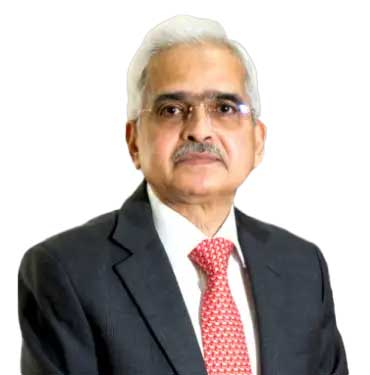
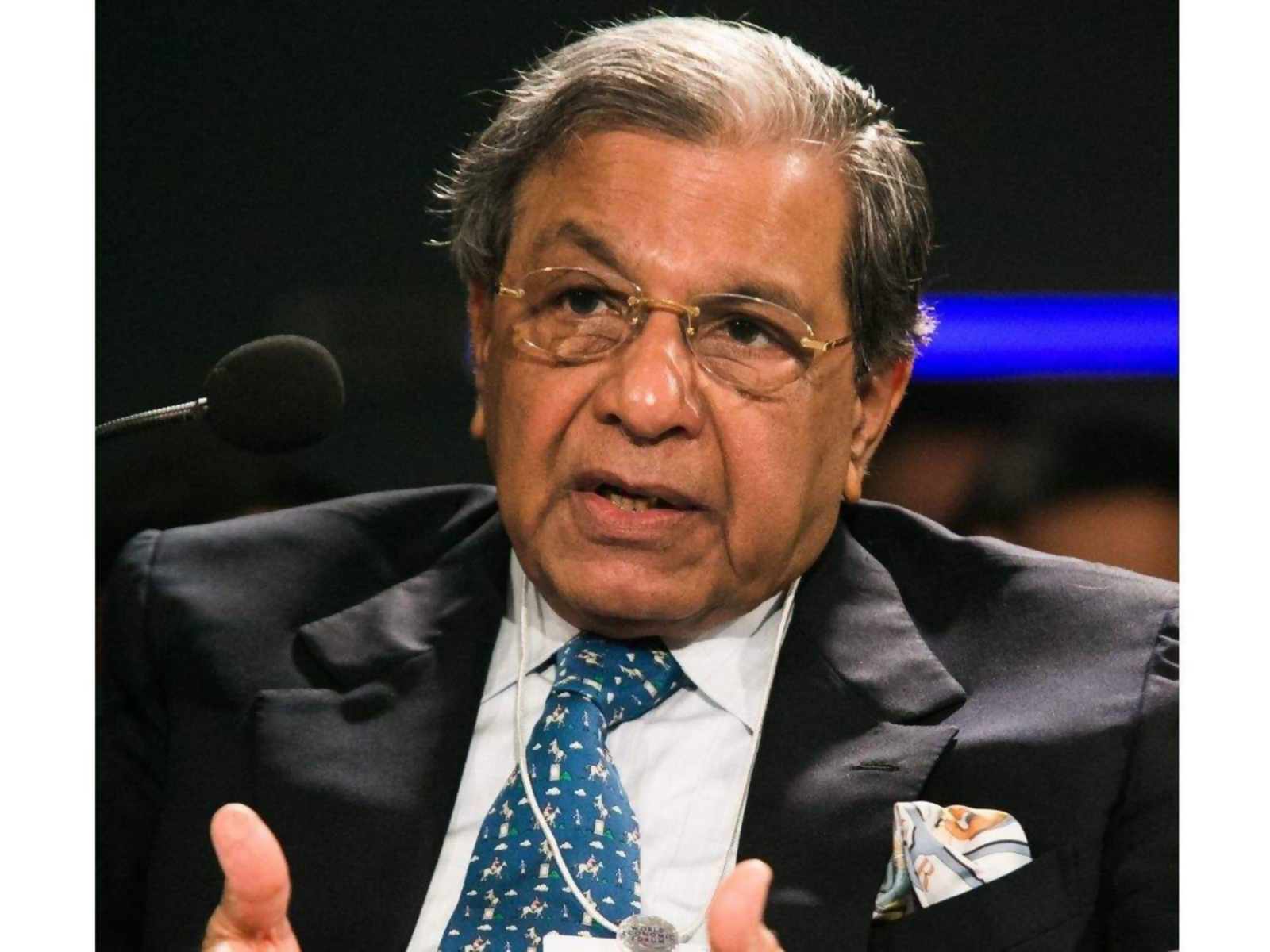
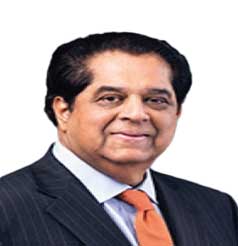
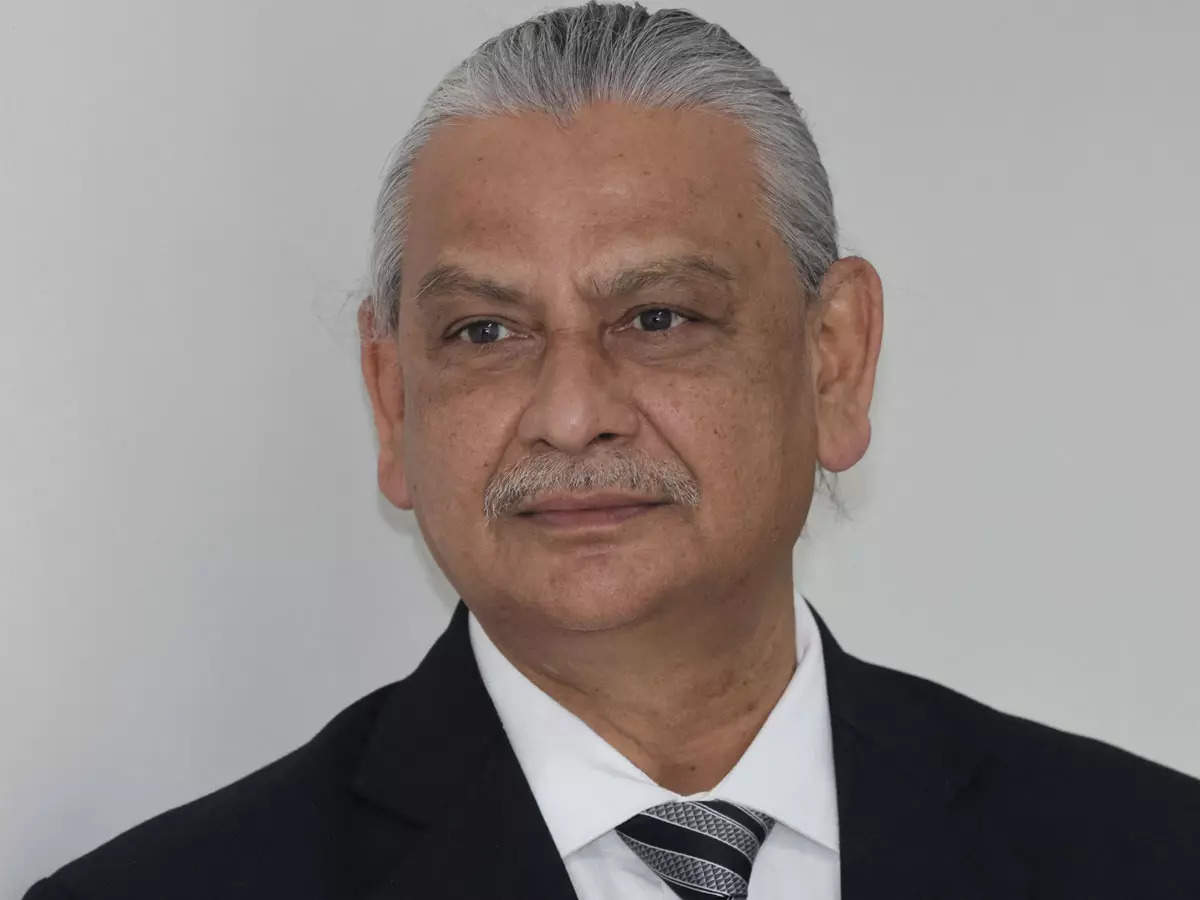
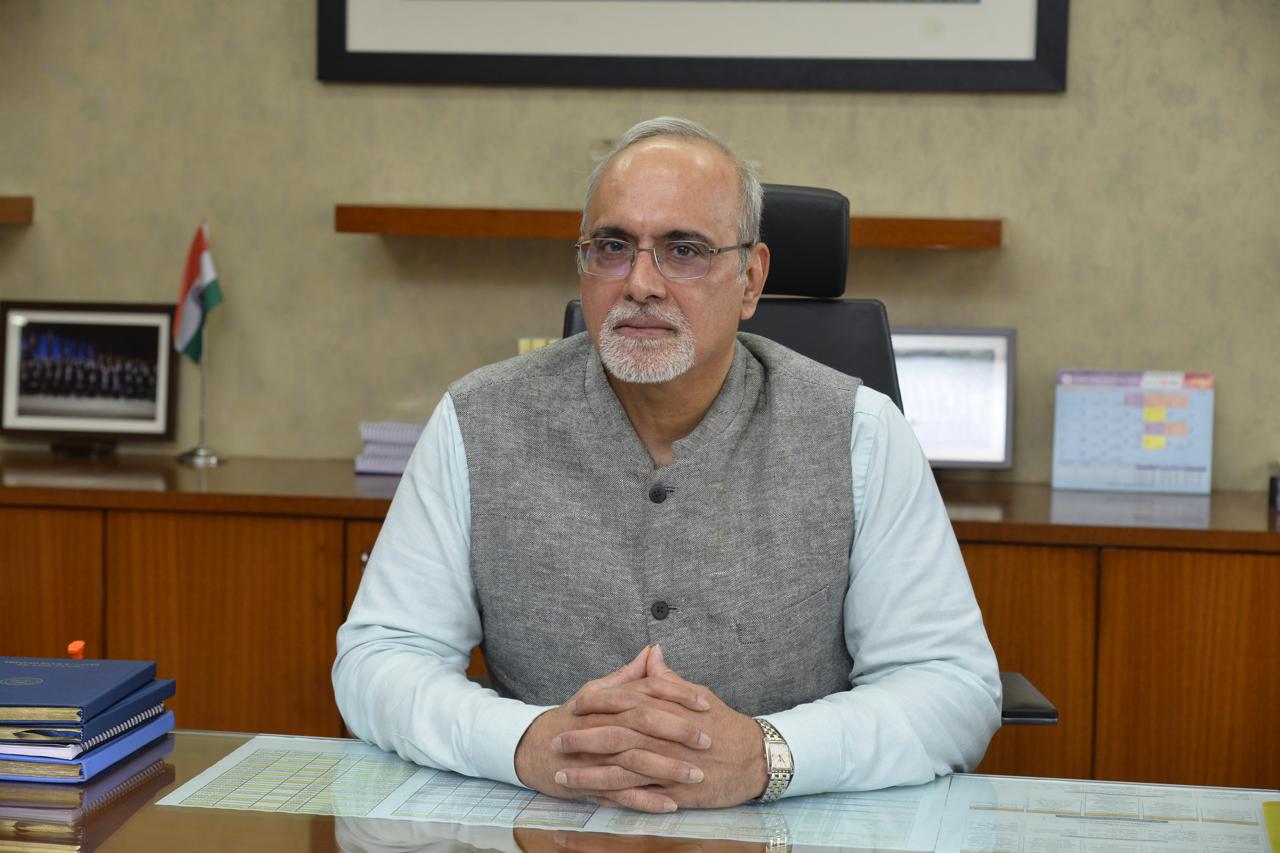
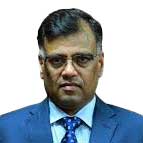
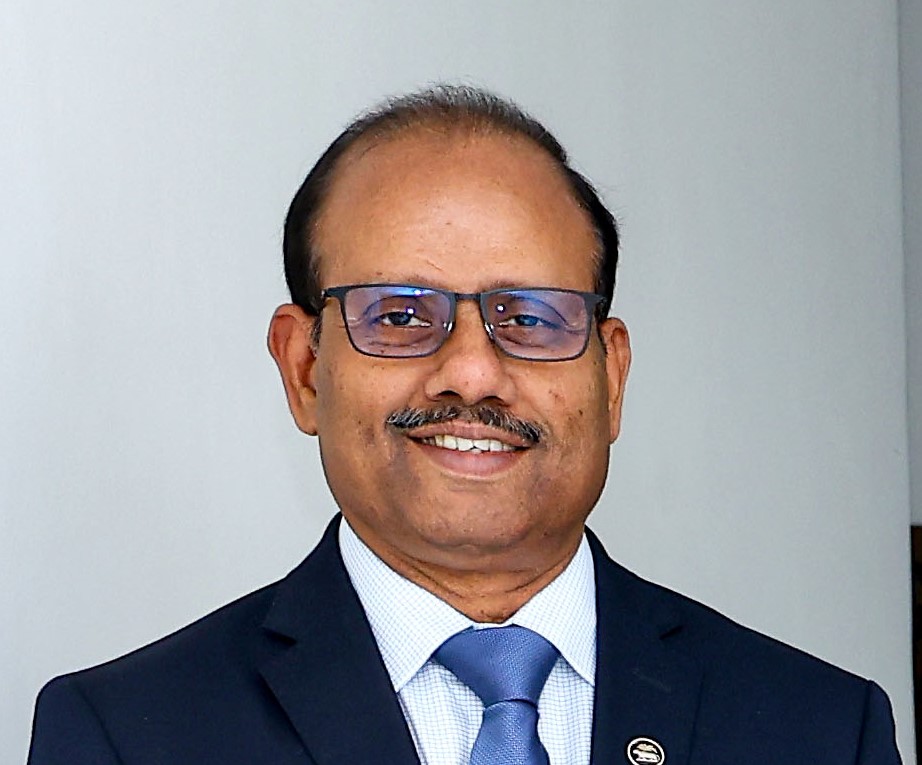
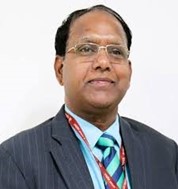
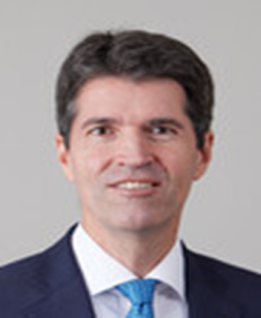

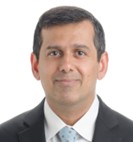
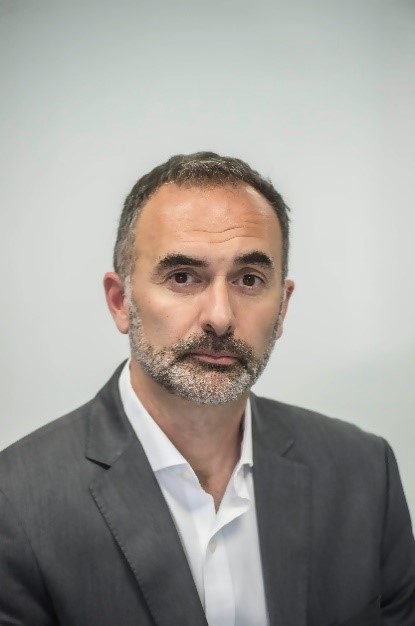

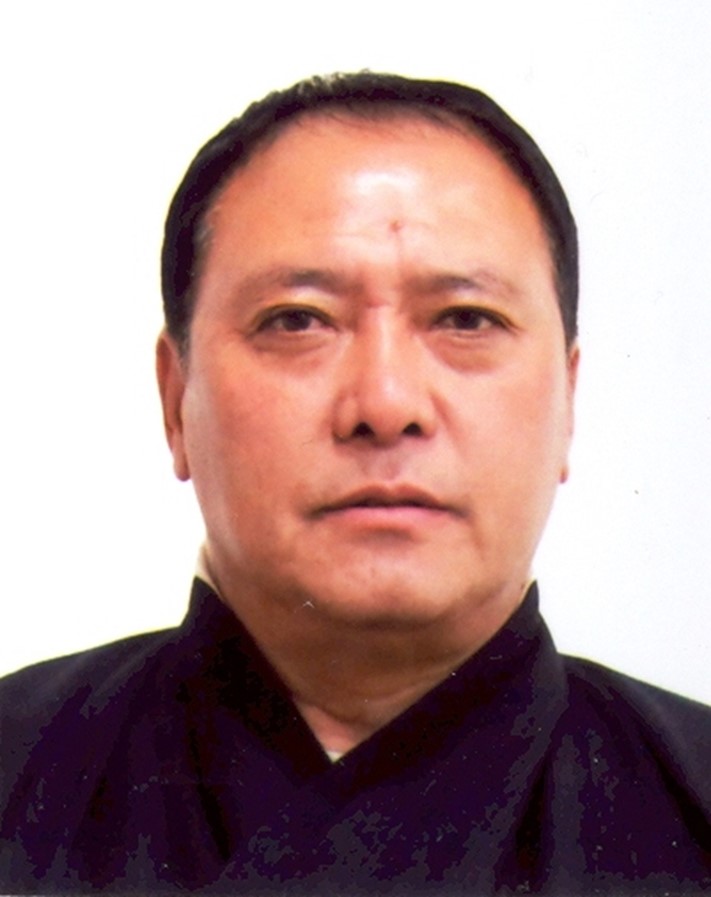
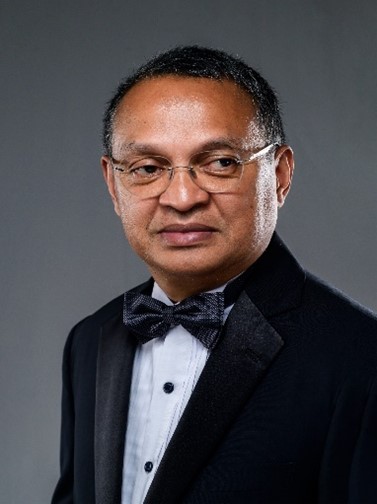
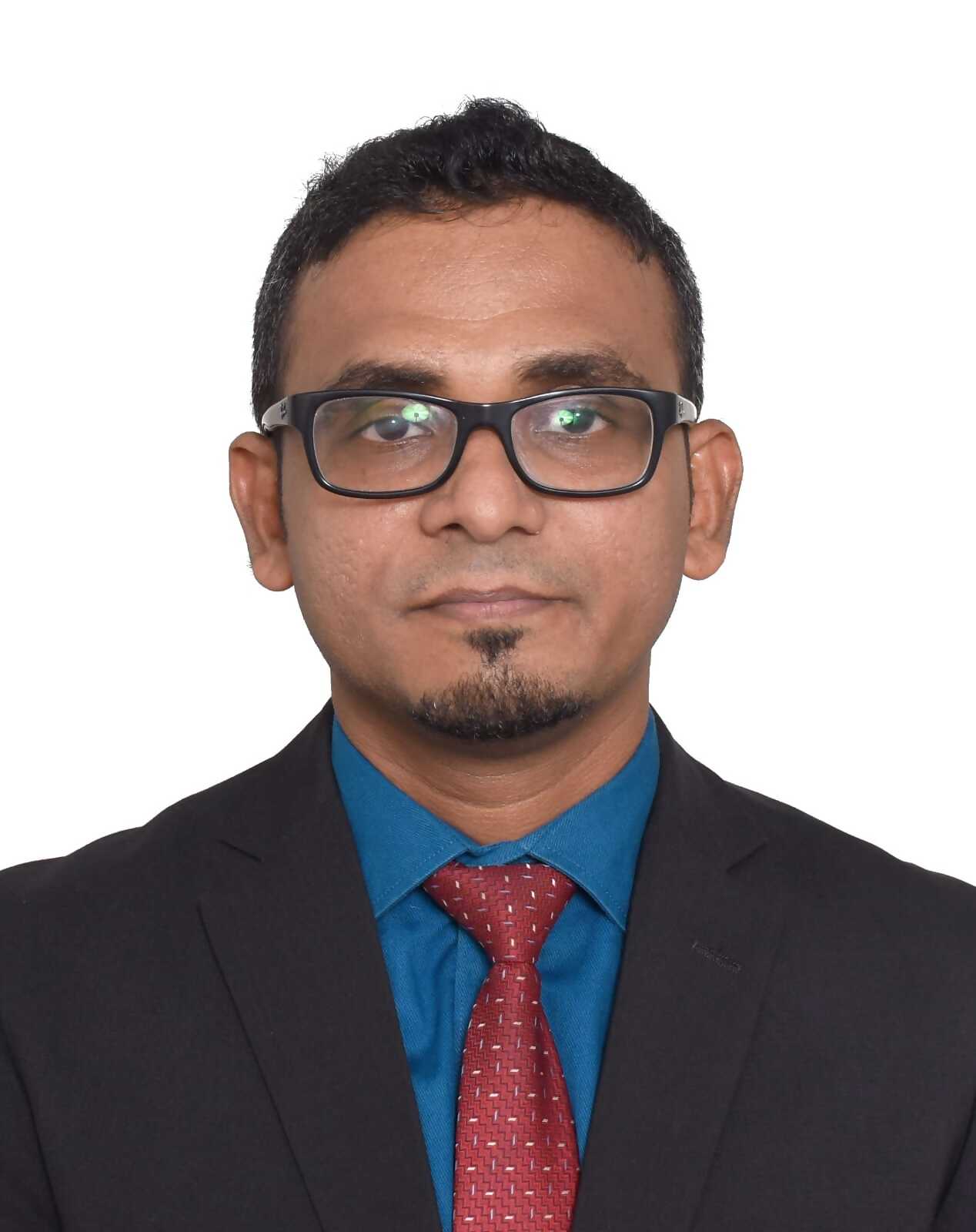
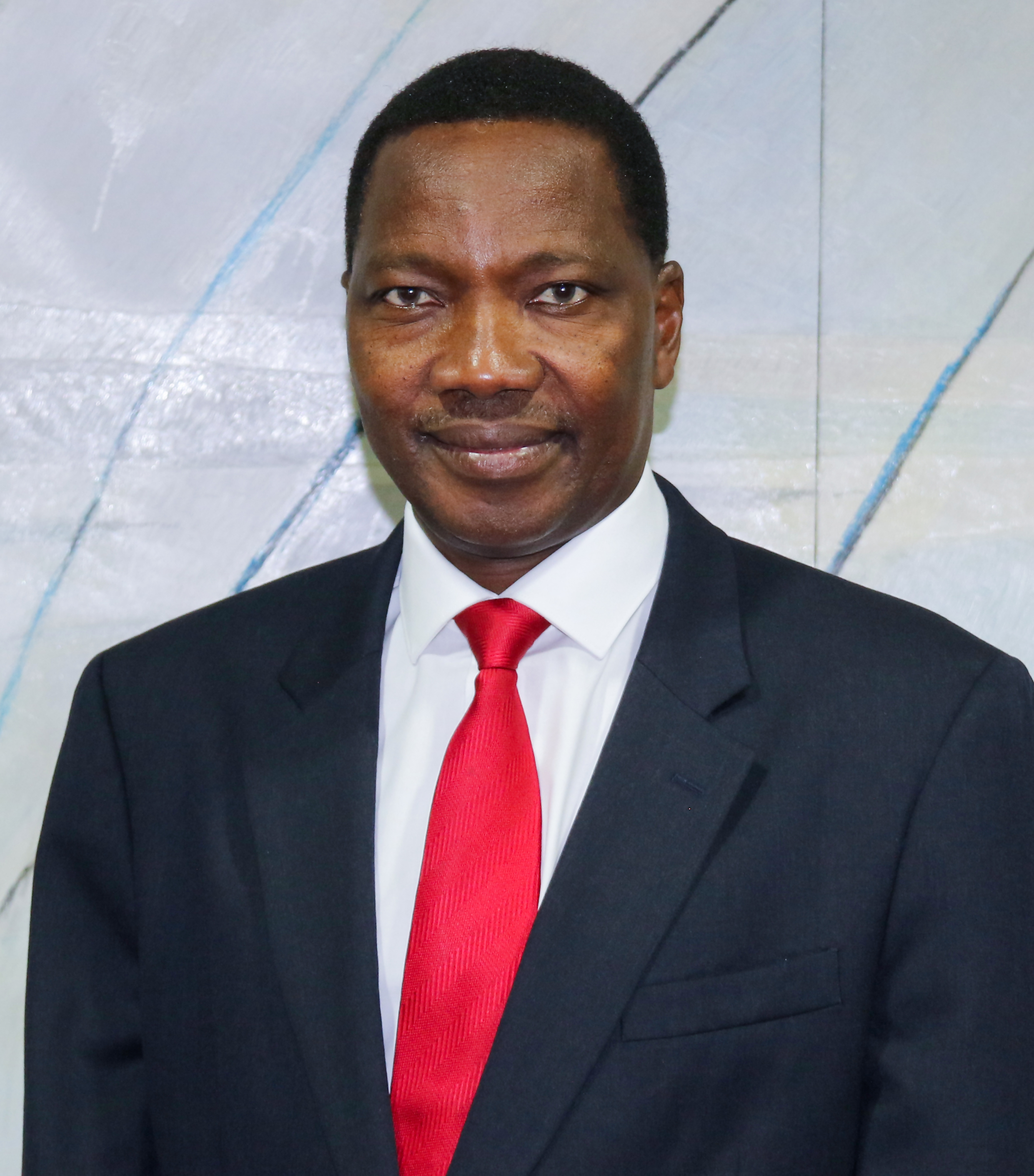
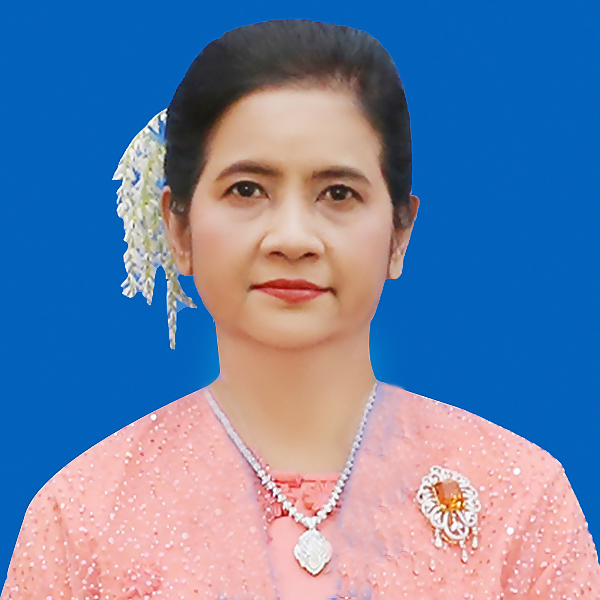
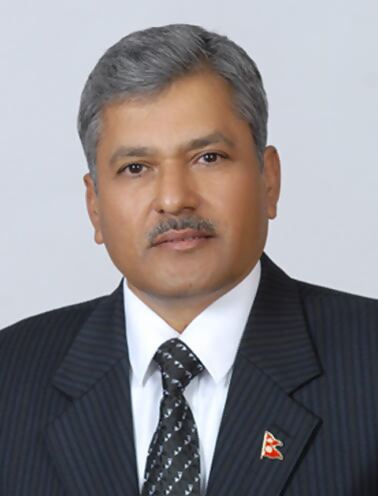
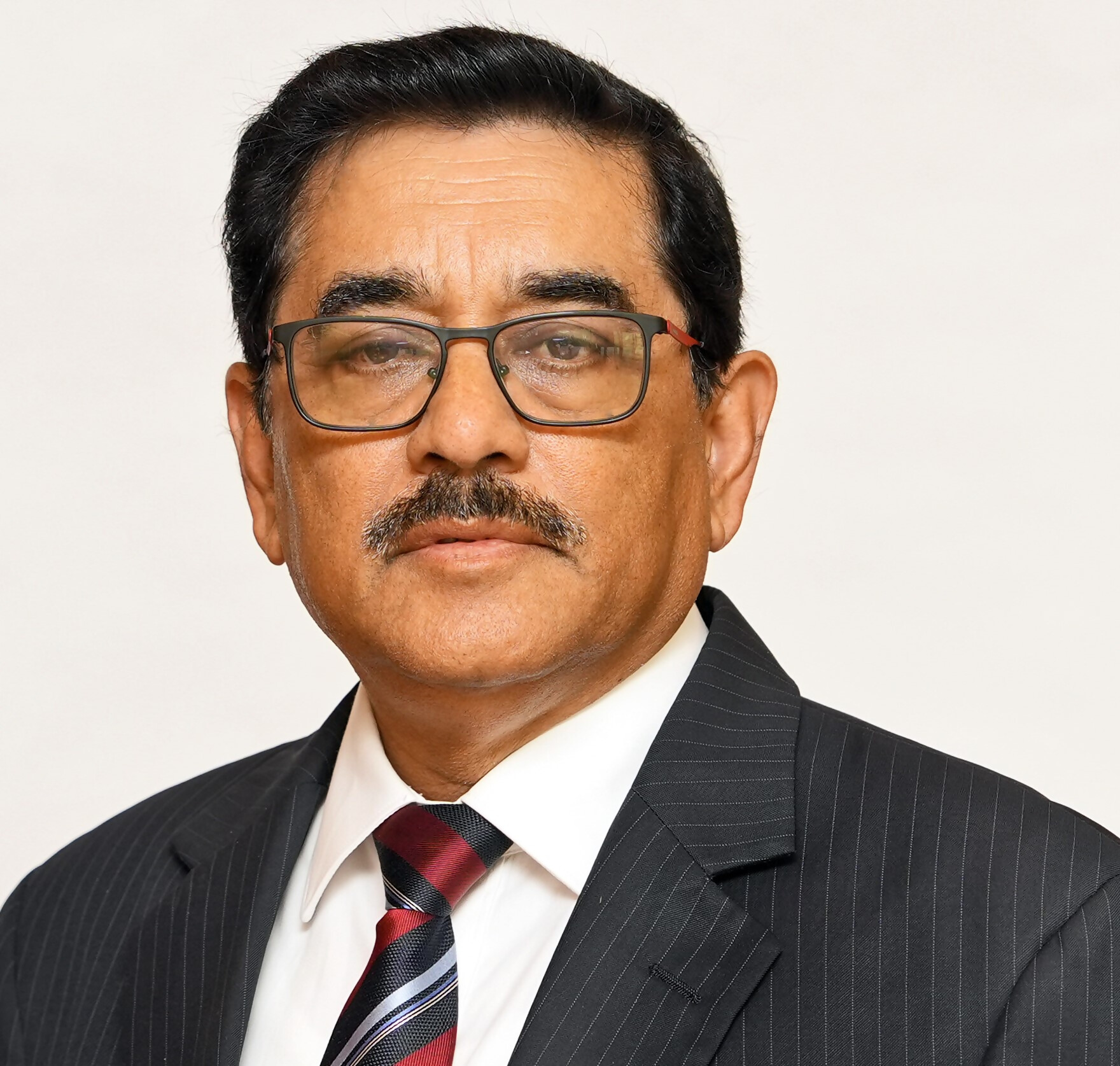
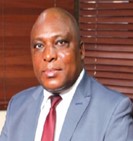

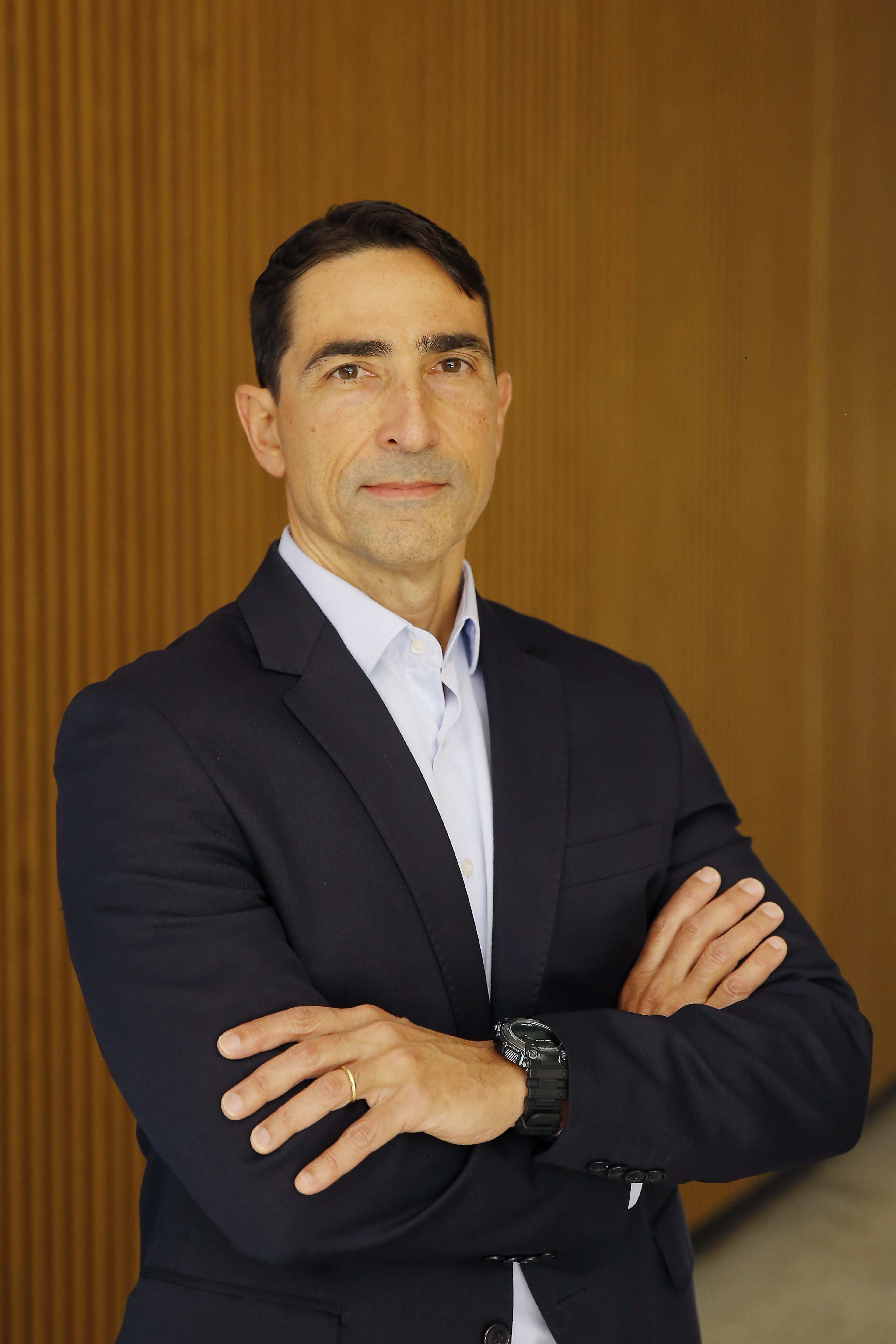
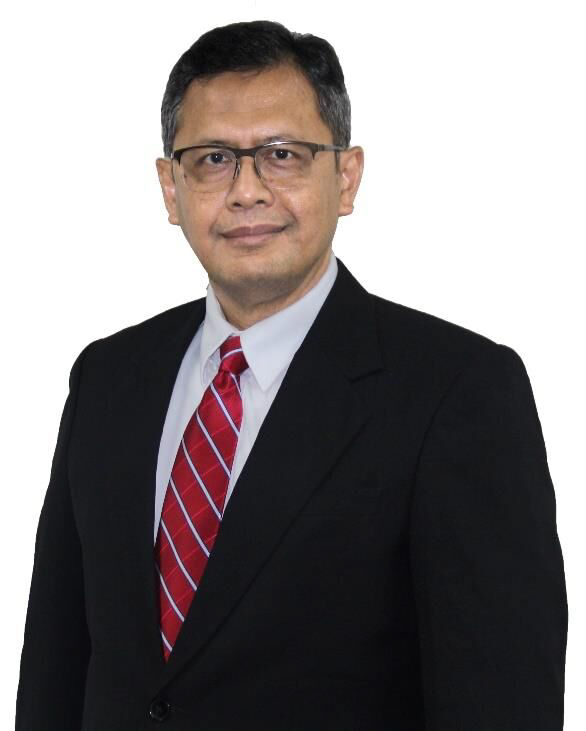
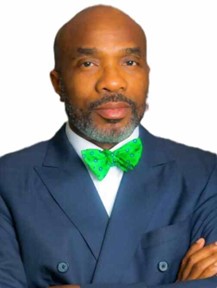
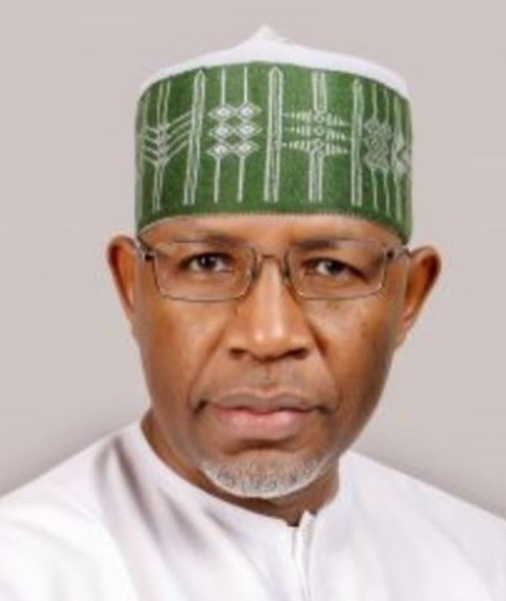


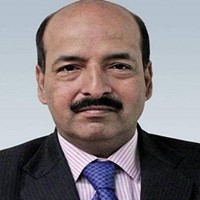
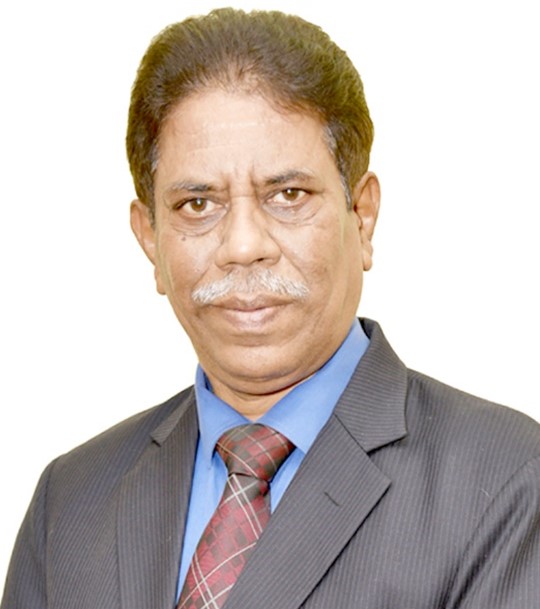
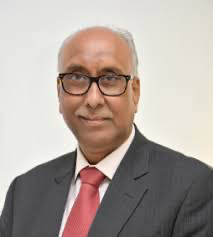


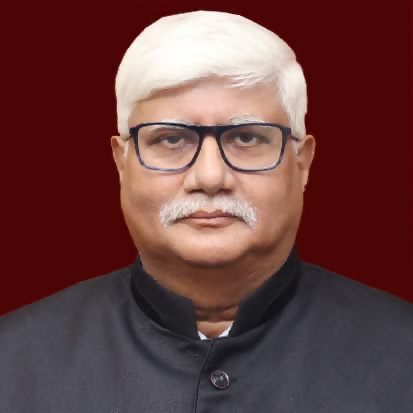

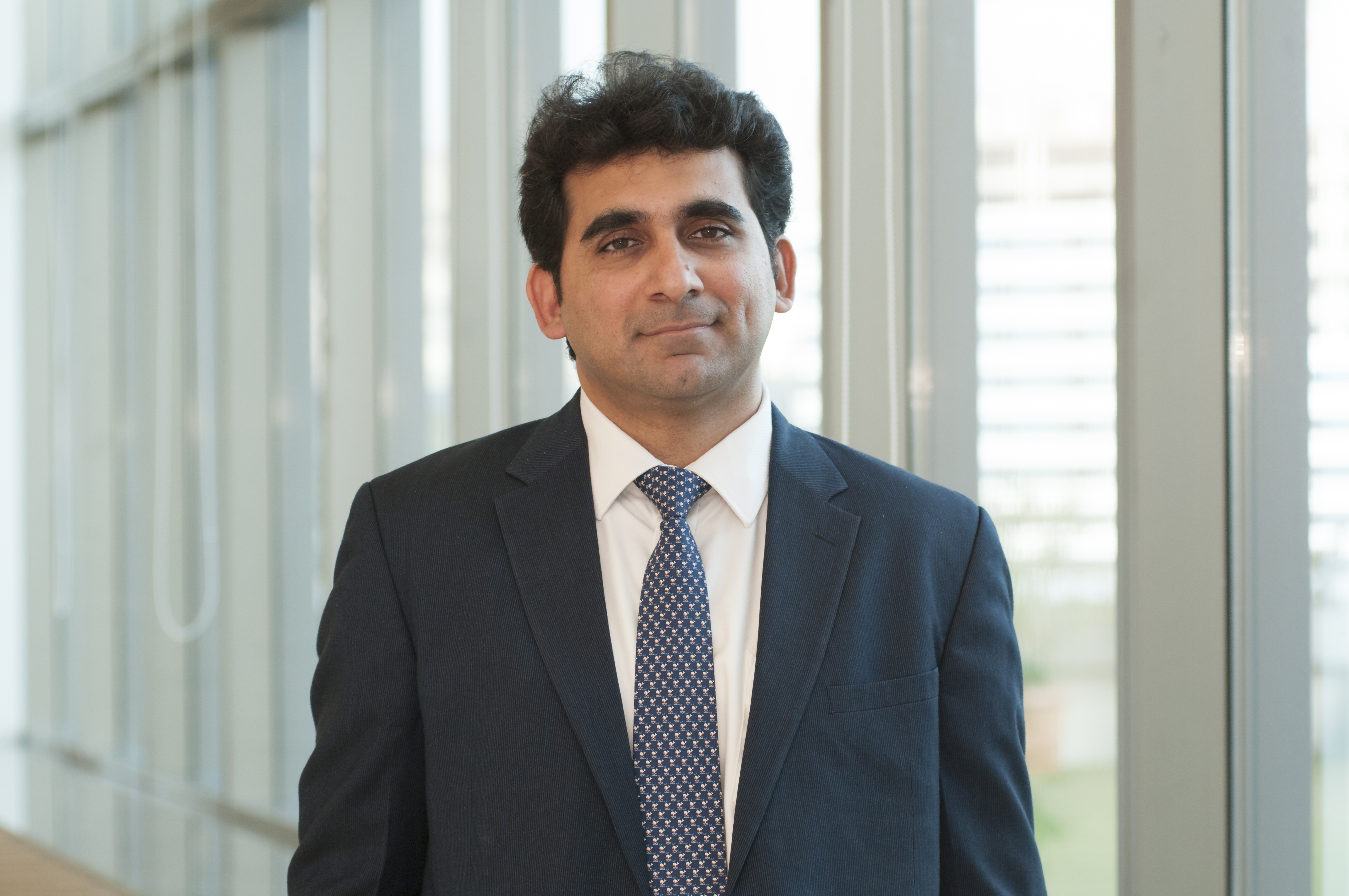
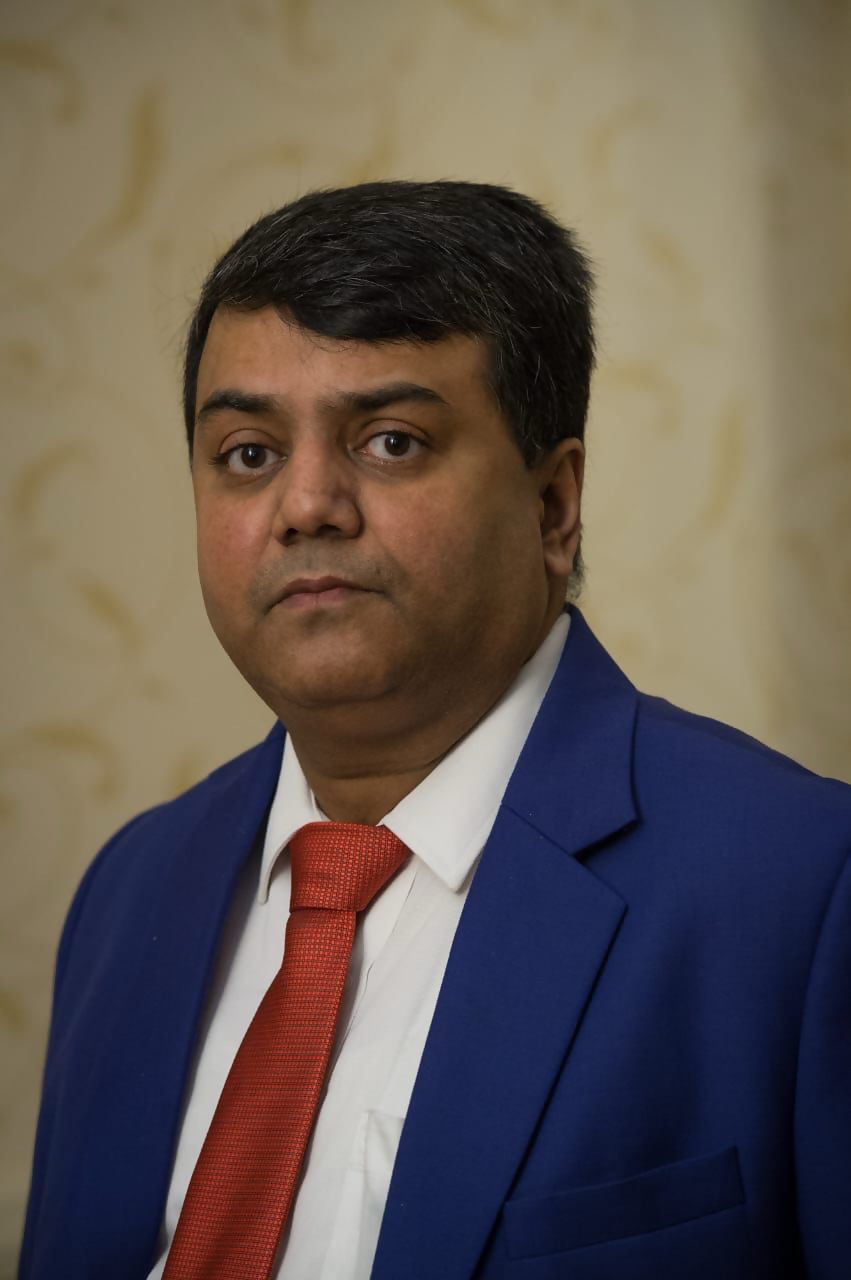
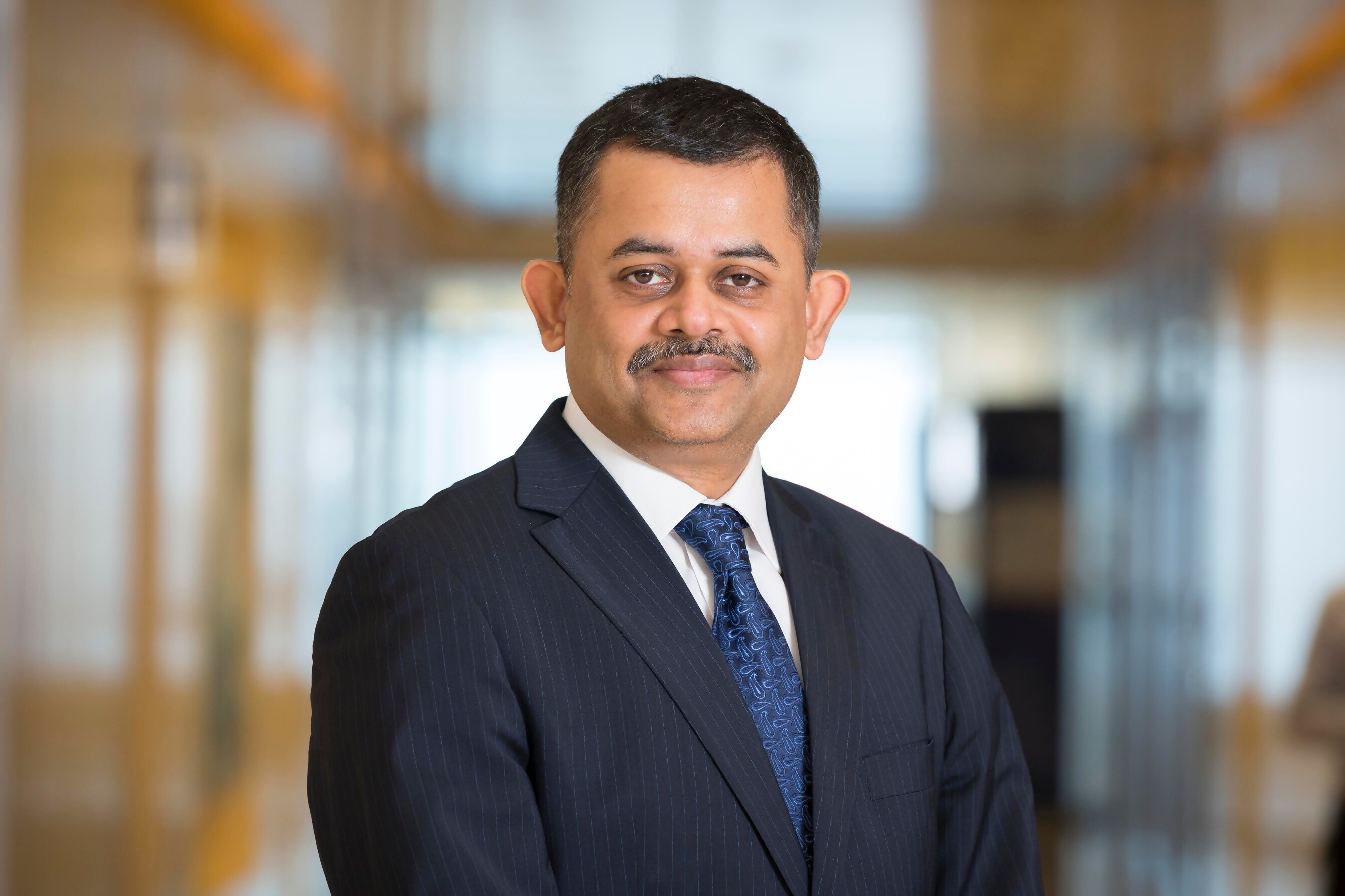

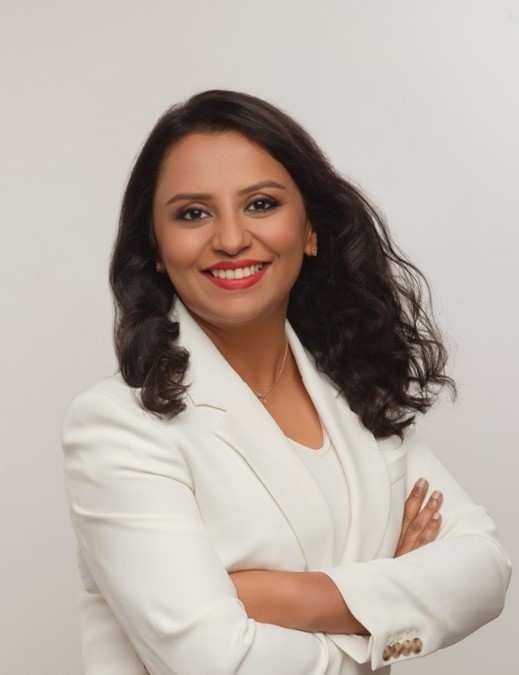
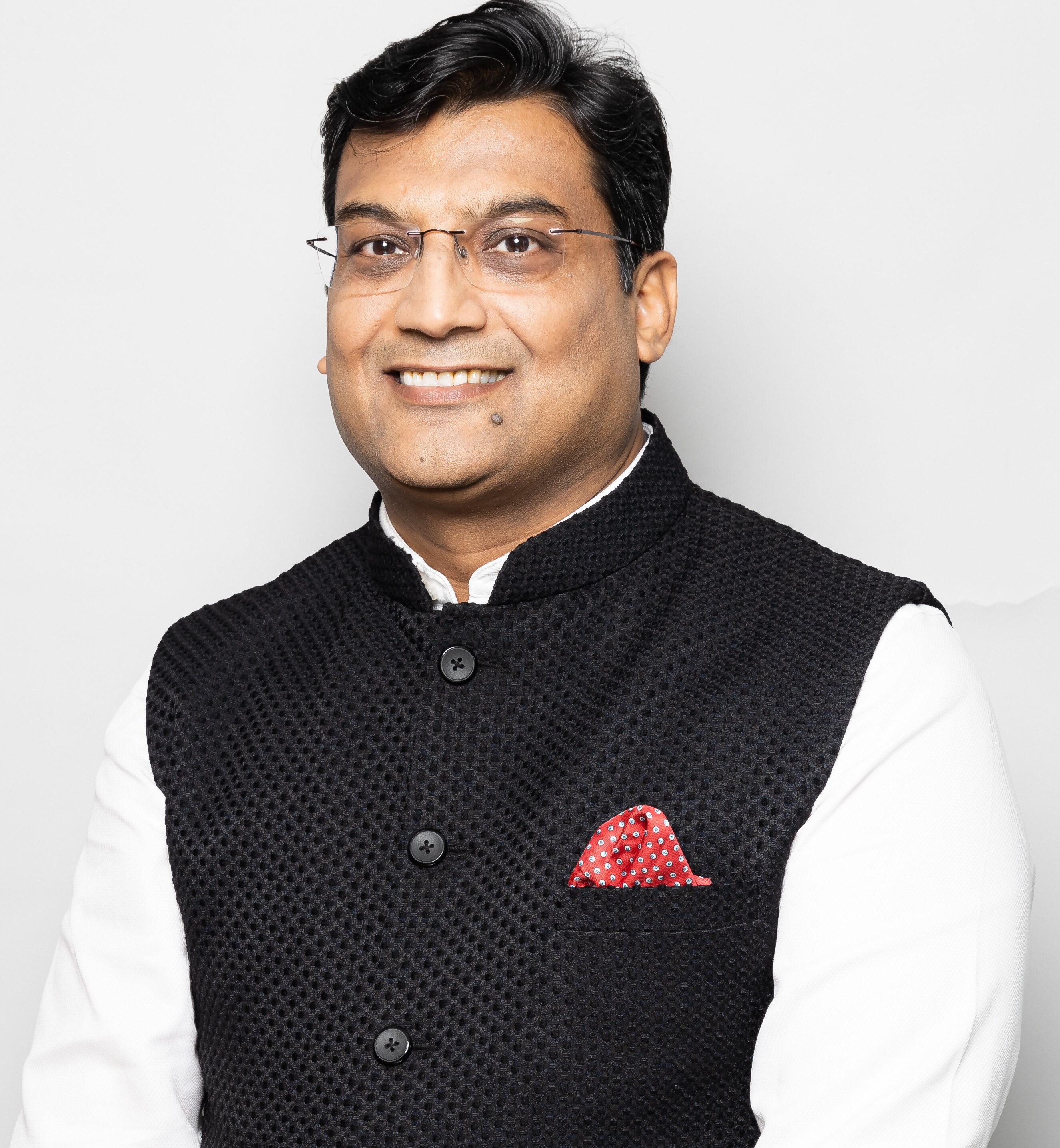
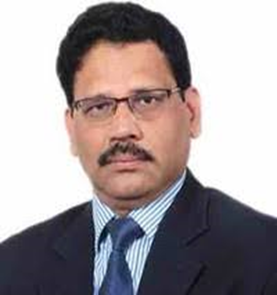

Shri Shaktikanta Das, Governor of Reserve Bank of India, has been a career civil servant with over 43 years of distinguished service, primarily in the areas of finance, taxation, investment and infrastructure.
Shri Shaktikanta Das possesses a unique combination of experience in both policy formulation and implementation at the highest levels of state and central governments. He has served as Revenue Secretary and as Secretary, Economic Affairs, Government of India. In these positions, he played important roles in conceptualisation and formulation of key policies in the areas of economic reforms, fiscal and monetary policy, financial markets and investment policy. Some significant reform measures with which Shri Das was associated include the Goods and Services Tax (GST), the Insolvency and Bankruptcy Code (IBC) and introduction of the Flexible Inflation Targeting framework. He also served as a Director in the Central Board of RBI rendering advice in the areas of Central Banking. He was also on the Board of Securities and Exchange Board of India (SEBI), the regulator for capital markets.
Shri Shaktikanta Das has served as India’s Alternate Governor in the World Bank, Asian Development Bank (ADB), New Development Bank (NDB) and Asian Infrastructure Investment Bank (AIIB). He represented India in several international fora like the IMF, G20, BRICS and SAARC.
Shri Shaktikanta Das has also acted as India’s G20 Sherpa and Member, Fifteenth Finance Commission.
As Governor, Reserve Bank of India, he has spearheaded a series of measures taken by the Reserve Bank to support growth and strengthen financial stability in the country. Since the onset of COVID-19 pandemic, he has steered the Reserve Bank’s response through several conventional, unconventional and innovative policy measures spanning monetary policy, liquidity conditions and regulatory policies to preserve financial stability while mitigating the adverse effects of the pandemic on the economy.
Shri Shaktikanta Das was conferred with the ‘Governor of the Year’ award by the Central Banking Publication, UK in 2023. He was rated ‘A+’ by the Global Finance Magazine in their Central Bank Report Cards 2023 and 2024. He was also conferred the 'Central Banker of the Year, Asia-Pacific 2020' award by the London based magazine – The Banker – which is a part of the Financial Times group.

Mr. Swaminathan Janakiraman, was appointed as the Deputy Governor of the Reserve Bank of India in June 2023 where his responsibilities include Supervision, Financial Inclusion and Development, Consumer Education and Protection.
Mr. Swaminathan is a career banker from State Bank of India (SBI), which is India’s largest bank. In an illustrious career with SBI spanning over 34 years, both in India and overseas, Mr Swaminathan has held various assignments across Corporate and International Banking, Retail and Digital Banking, Finance and Assurance functions.
As Managing Director of SBI, Mr. Swaminathan oversaw the large corporate and commercial credit business of the bank along with the Non-Banking Subsidiaries of SBI and Regional Rural Banks sponsored by SBI. In his immediately preceding assignment, Mr. Swaminathan was in charge of the stressed assets management vertical, Risk management functions and Regulatory compliance. Apart from serving as SBI’s nominee on the Boards of various organisations, he also chaired the Advisory Group to the Regulations Review Authority (RRA 2.0) of the Reserve Bank of India (2021-22).
Previously, as Deputy Managing Director (Finance), Mr. Swaminathan handled the Balance Sheet Management, Planning and Budgeting functions as well as Investor Relations. As SBI’s Chief Digital Officer, Shri Swaminathan oversaw Digital & Transaction Banking verticals of the Bank. Earlier, as a Chief General Manager, Mr Swaminathan headed a major regional office of SBI, taking care of the Retail Banking business. In this tenure, he was also the President of the State Level Bankers’ Committee and was responsible for spearheading the financial inclusion initiatives of the banking community.
Mr Swaminathan has an Executive MBA from the National Institute of Business Management. He is a Certified Associate of Indian Institute of Bankers (CAIIB), Certified Documentary Credit Specialist (CDCS) and Certified Anti-Money Laundering Specialist (CAMS).

Shri K. V. Kamath is an lndian banker having started his career in 1971 at ICICI. ln 1988, he moved to the Asian Development Bank and spent several years in South East Asia before returning to the ICICI as its Managing Director and CEO in 1996 and post its merger into ICICI Bank, was Managing Director and CEO of ICICI Bank. Under his leadership, the ICICI transformed itself into a diversified, technology-driven financial services group across banking, insurance and asset management in lndia, and a global presence. He retired as Managing Director and CEO in 2009 and continued as the Chairman of ICICI Bank till 2015.
Shri K. V. Kamath has served as Chairman of lnfosys. ln 2015 he was appointed as the first President of the New Development Bank set up by the BRICS countries from where he retired in 2020. He is currently the Chairman of the National Bank for Financing Infrastructure and Development (NaBFlD) and Chairman of Jio Financial Services Ltd.
Shri K. V. Kamath was awarded the Padma Bhushan, one of lndia's highest civilian honours in 2008.
Shri K. V. Kamath is a mechanical engineer and completed his post graduation in business administration from the lndian lnstitute of Management, Ahmedabad.

Mr T. Rabi Sankar, a career central banker joined the Bank in 1990 and has worked in various capacities until he assumed the Office of Deputy Governor in May 2021. His current areas of responsibility include public debt management, forex reserves management, payment systems, IT infrastructure, currency management and foreign exchange management. Mr Sankar is also the Chairman of the Reserve Bank’s currency notes printing Press.
Mr Sankar has extensive experience in the area of public debt management. In the early 2000s, he played a key role in creating the regulatory framework for government securities market in India. He was also instrumental in setting up Reserve Bank of India’s screen based anonymous Negotiated Dealing System (NDS) in Government Securities with guaranteed settlement through a central counterparty. More recently, under his guidance, RBI has rolled out a web-based system called “Retail Direct” enabling Indians to directly buy and sell Indian government bonds. Earlier, Mr Sankar worked in the Indian Government and helped in setting up government’s public debt management unit inside the Ministry of Finance. He has also advised the Government of Bangladesh regarding their government securities market and served as an IMF Consultant (2005-11) on developing Government bond markets and debt management.
As Deputy Governor In-Charge of Payment Systems, he has oversight of the well-known Unified Payment Interface (UPI) and other digital payment systems, all of which have contributed to widespread adoption of digital payments and positioned India as a leading country in this area. The RBI recently set up its own Innovation Hub in Bangalore which has devised a digital solution for speeding up disbursal of rural credit and other innovative initiatives for strengthening financial inclusion. More recently, the RBI has rolled out a pilot for testing the Central Bank Digital Currency (CBDC).
He has represented RBI on international forums like Bank for International Settlements and various internal and external expert committees and working groups.
Mr Sankar has a Master of Philosophy in Economics from the Jawaharlal Nehru University, New Delhi.

Shri M. Rajeshwar Rao took over as the Deputy Governor of Reserve Bank of India on October 9, 2020. He was Executive Director of the Reserve Bank prior to his elevation to the post of Deputy Governor.
As Deputy Governor, Shri Rao looks after Department of Regulation, Department of Communication, Enforcement Department, Legal Department and Risk Monitoring Department. He also represents RBI in various international organisations such as Financial Stability Board (FSB) and Network for Greening the Financial System (NGFS). Earlier, he was a member of the Markets Committee at Bank for International Settlements (BIS).
Shri Rao, a career central banker joined the Bank in 1984 and has worked in various positions in Reserve Bank of India. As Executive Director, he was looking after the Financial Markets Operation Department, the International Department, the Internal Debt Management Department and the Secretary’s Department in RBI.
Prior to taking over as the Executive Director, Shri M. Rajeshwar Rao was the Chief General Manager, Financial Markets Operation Department and had previously held charge of the Risk Monitoring Department. He has also worked as the Banking Ombudsman, New Delhi. He has also worked in central offices of Foreign Exchange Department and Department of Banking Regulation as well as in the Reserve Bank’s regional offices at Ahmedabad, Hyderabad, Chennai and New Delhi.
Shri M. Rajeshwar Rao has a Bachelor of Arts in Economics and a Master of Business Administration from University of Cochin. He is also a Certificated Associate of Indian Institute of Bankers.

Michael Debabrata Patra, a career central banker is the Deputy Governor responsible for monetary policy, financial markets, deposit insurance, research and statistics, international relations and corporate strategy of the Bank. He is a member of the Monetary Policy Committee of the Reserve Bank of India, which is invested with the responsibility of monetary policy decision making in India. He has served in the International Monetary Fund as Senior Adviser to Executive Director (India) during December 2008 to June 30, 2012. A Fellow of the Harvard University where he undertook post-doctoral research, he has a Ph.D. in Economics from the Indian Institute of Technology, Mumbai.

President, Institute of Economic Growth; Co-Convenor, G20 Expert Group on MDB reforms; and Chairman, 15th Finance Commission of India.
Mr. N.K. Singh is a prominent Indian economist, academician, and policy interlocutor. He is currently the President of the Institute of Economic Growth, and Co-convener of the G20 Independent Expert Group for the reforms of the multilateral development banks. He was Chairman of the 15th Finance Commission, and prior to that, presided as Chairman of the Fiscal Responsibility and Budget Management Review Committee (FRBM).
He was a member of the Upper House of Parliament, the Rajya Sabha, from 2008 to 2014. He was Expenditure Secretary, Revenue Secretary, Member of the Planning Commission, and Secretary to the Prime Minister of India, among other senior leadership roles. He served in Japan as the Minister, Economic and Commercial, Embassy of India, Japan, and played a prominent role in the promotion of Indo-Japanese relations, including negotiations of the prestigious Maruti-Suzuki collaboration. Thereafter, his contributions to the international economic order were recognized by the Emperor of Japan with the award of the “Order of the Rising Sun - Gold and Silver" in 2016.
Last, but not the least, he has very recently been conferred the prestigious Honorary Fellowship from the London School of Economics.
Mr Singh is also the author of several books like his autobiography, Portraits of Power: Half a Century of being at Ringside, more recently Recalibrate, The New Bihar and earlier Not by Reason Alone: The Politics of Change.

Luis Bengoechea was appointed Head of the BIS Banking Department in June 2024. Mr Bengoechea joined the BIS in 1998 and, during his long career at the institution, he has held, among others, the positions of Head of Interest Rates Group, responsible for managing the money market and interest rate derivatives businesses, and Acting Head of Credit Markets Group, managing the Credit Group business.
In 2022, in addition to his position as Head of Treasury, he was appointed as Deputy Head of BIS Banking Department. Before joining the BIS, Mr Bengoechea worked in the global market division of a large US commercial bank, dealing mainly with fixed income and derivatives. Mr Bengoechea holds degrees in law, business administration and psychology.

Dr. Ahsan H. Mansur, the 13th Governor of Bangladesh Bank, assumed office on August 14, 2024. His illustrious career began in 1976 as a Lecturer in Economics at the University of Dhaka, after which he pursued higher studies in Canada. Between 1978 and 1981, he served as a graduate student and research assistant of Economics at the University of Western Ontario.
Dr. Mansur joined the International Monetary Fund (IMF) in 1981 under its Economist Programme. Over his distinguished tenure at the IMF, he contributed to fiscal and macroeconomic policymaking across the Middle East, Asia, Africa and Central America. He held pivotal roles, including IMF Senior Resident Representative to Pakistan (1998–2001) and Fiscal Advisor to Bangladesh's Finance Minister (1989–1991). Notably, he played a key role in introducing Value Added Tax (VAT) in Bangladesh in 1991. He later served as the Division Chief of the Gulf Cooperation Council (GCC) Division and IMF Mission Chief for Saudi Arabia, Kuwait, and Oman.
A prolific researcher, Dr. Mansur has published extensively in renowned journals like Econometrica and Journal of Economic Theory. He holds a Ph.D. in Economics from the University of Western Ontario, Canada (1982), an M.A. from McMaster University (1977), and a B.A. (Hons.) in Economics from the University of Dhaka (1974).

Mr. Dasho Penjore was appointed Governor of the Royal Monetary Authority of Bhutan in December 2015 by His Majesty the King and is currently serving his second term after being re-appointed in 2020. Prior to his appointment as Governor, he was the CEO of Bhutan’s National Pension and Provident Fund. Mr. Dasho Penjore also held the position of Gyalpoi Zimpon (Royal Chamberlain), where he worked on social policy and welfare initiatives under His Majesty’s guidance. In recognition of his dedicated service to the nation, he was conferred the Red Scarf along with the honorific title of “Dasho” by His Majesty in 2008. In 2017. He was awarded the Druk Thuksey medal also known as "Heart Son of the Thunder Dragon (Bhutan)", it is awarded by His Majesty the King to people who have contributed in a variety of ways to the socio-economic, religious and political development and growth of Bhutan.
Mr. Dasho Penjore holds a master’s degree in economics from Northwestern University in the United States. With extensive experience in Bhutan’s macroeconomic policy, central banking, and monetary policy, he has built a wide network of professional connections in both the public and private sectors.

Aivo H ANDRIANARIVELO is the Governor of the Central Bank of Madagascar since 4 January 2023. He brings 30 years’ experience in the banking and financial sector through various managerial assignments.
Economist, he has a deep knowledge and experience with regard to capital markets, banking matters, business management, project management and public-private funds management.
Prior to joining the Central Bank of Madagascar, he was the Executive Director of the International Monetary Fund (IMF) for Africa II, where he served as a member of the Board and represented 23 african countries.
He has held several senior positions at a bank, where he has been involved in the establishment of the accounting system and the regular report, in the management of foreign currencies, the trading, and then in the organizational, administrative and operational management of the bank as a Deputy Director.
He supported the efficiency of the management related to the financial resource of the programme as Financial Director of Catholic Relief Services.
He also headed the Portage and Privatisation Fund as the Chief Executive Officer and the Chairman. Prior to joining the International Monetary Fund, he was a Technical Advisor to the Cabinet of the Minister of Finance in Madagascar.
He holds degrees in economic sciences and in banking techniques, and also received various training in trading, monetary market, foreign exchange, capital market, leadership and management.

H.E. Ahmed Munawar was appointed as the 9th Governor and Chairperson of the Board of Directors of the Maldives Monetary Authority (MMA) on 31st July 2024, for a term of seven years. In addition to his role at the MMA, Governor Munawar serves as the Chairperson of the National Coordination Committee for Anti-Money Laundering and Combating the Financing of Terrorism, the national body responsible for coordinating and overseeing anti-money laundering and counter-terrorism financing efforts.
Governor Munawar's distinguished career includes serving as the Minister of Finance and Treasury from 2016 to 2018 and as the State Minister of the Ministry of Finance and Treasury from 2014 to 2016. Furthermore, he was the Dean of the Kulliyyah of Economics and Management Studies (KEM) at the Islamic University of Maldives from 2021 to 2023. His earlier tenure at the MMA, spanning from 1999 to 2014, involved various roles that significantly contributed to his expertise in the field.
Governor Munawar holds a Master of Economics with a major in Monetary Economics from Macquarie University, obtained in 2008. He also holds a Bachelor of Economics (Hons) with a major in Finance from the International Islamic University Malaysia (IIUM), completed in 2004.

Rogério Lucas Zandamela was born in Inhambane on February 24, 1957. During the colonial period he attended the Liceu António Salazar (now Josina Machel Secondary School) and concluded his secondary studies at Liceu António Enes (now Francisco Manyanga Secondary School), in Lourenço Marques (now Maputo city). He began his degree in Economics at the University of Lourenço Marques (now Eduardo Mondlane University) in 1976 and, in 1981, he concluded his bachelor's degree in Economics and Trade at the Università Cattolica del Sacro Cuore, in Italy.
In 1983, he pursued his studies and obtained a postgraduate diploma in Development Economics at Université Paris II - Sorbonne, in France.
In 2006, he was an Assistant Professor of Economics at Eastern Michigan University, Ypsilanti, in the United States of America.
Zandamela holds a PhD in Economics from John Hopkins University (1987). He has been an official at the International Monetary Fund since 1988, where he served as Resident Representative for Brazil, and Head of Mission for Armenia, Costa Rica, Gambia, Guatemala, Liberia, Malaysia, Nicaragua, Peru, Trinidad and Tobago and Zimbabwe, in the Monetary and Capital Markets Department.
Until his appointment as Governor of the Banco de Moçambique on 1 September 2016, he was the Head of Mission for Djibouti and Somalia in the IMF Middle East and Central Asia Department.

Ms. Than Than Swe has been working as the Governor of the Central Bank of Myanmar since 2022. Before taking over this position, she was working as the Deputy Governor and she has over 30 years of experience in Central Bank and banking industry. She is also a chair of the Board of Directors at the Central Bank of Myanmar, and playing a vital role of payment development policy and digital economy development committee. Previously, she worked as an Advisor to the World Bank from 2012 to 2014.
She takes the position of the Chair of the Monetary Policy Committee, the Foreign Exchange Reserve Management Committee, the National Payment System Governing Committee, and the Working Group on Anti-Money Laundering and Countering the Financing of Terrorism.
Ms. Than Than Swe has earned Bachelor of Commerce and Diploma in Management Accounting, from the Institute of Economics (Yangon) and expanded a Diploma in English from Yangon University. She also pursued an advanced Master's degree in Business Administration (MBA) from Japan.

Maha Prasad Adhikari is the Chairperson of the Board of Directors and the 17th Governor of Nepal Rastra Bank (NRB). Before his appointment as the Governor of NRB, he served as Chief Executive Officer at the Investment Board Nepal (IBN), Government of Nepal, and Deputy Governor of NRB. Preceding those appointments, he had served NRB for more than 25 years in various capacities. Throughout his career as a central banker, Mr. Adhikari has gained wide-ranging experience in central banking, especially relating to financial stability, financial sector reforms, Anti Money Laundering/Combating the Financing of Terrorism, and implementation of Accounting Standards, among others. As Deputy Governor of NRB, Mr. Adhikari played a leading role in various financial sector policies and financial sector reform programs with active engagement in areas such as Problem Bank Resolution, Capital Adequacy Framework, Risk Based Supervision, Early Warning System and Prompt Corrective Actions. He was nominated as the coordinator of the management team of Nepal Bangladesh Bank Limited when the bank was declared problematic and played a critical role in its turnaround.

Dr. P Nandalal Weerasinghe holds a PhD and a Master’s Degree in Economics from the Australian National University, and a B.Sc. Degree from the University of Kelaniya. Dr. Weerasinghe served at the Central Bank of Sri Lanka nearly 30 years in different capacities including Chief Economist/Director of Economic Research, Assistant Governor, Deputy Governor and Senior Deputy Governor. He also served as an Alternate Executive Director for India, Sri Lanka, Bangladesh and Bhutan, at the International Monetary Fund.
Dr. Weerasinghe also served as Visiting Lecturer for the Master’s Degree Course in Economics at the University of Colombo, Visiting Research Economist at the SEACEN Centre, Malaysia, and Visiting Research Fellow at the Australian National University. He is also an Advisory Board Member of the Centre for Applied Macroeconomic Analysis, Crawford School of Public Policy, Australian National University. He has published several research papers in international and local journals, including the Central Bank’s Staff Studies.
After retirement from the Central Bank in January 2021 he worked as an Independent Consultant for economic and financial matters for multilateral agencies and global investment firms prior to assuming duties as the 17th Governor of the Central Bank in April 2022. Dr Weerasinghe has been rated ‘A‘ by Global Finance Magazine recently, based on inflation control, economic growth goals, currency stability and interest rate management.

Dr. John Mushayavanhu is the eighth Governor of the Reserve Bank of Zimbabwe. Before joining the Reserve Bank of Zimbabwe in early 2024, Dr. Mushayavanhu, served as the Group Chief Executive Officer of the FBC Holdings, which is one of the largest financial services group in Zimbabwe with interests in banking, insurance and stockbroking. He has spent more than three decades in financial sector in various capacities, including at Standard Chartered Bank, Zimbabwe. He also served as the President of the Bankers Association of Zimbabwe.

Leonie Dunn was born in Rehoboth, Namibia to Namibian parents. She schooled in the regional areas of Namibia and are amongst Namibia’s first previously disadvantaged females who were awarded with the Law Society of Namibia Scholarship to purse the degrees BA Law LLB at the University of Stellenbosch successfully attaining same during the years 1995 and 1997 respectively. She further remains amongst the first previously disadvantaged Namibian females who successfully qualified as Legal Practitioner and practice as such in Namibia. Leonie is also a Chevening Alumni who with a Chevening Scholarship, attained her Master’s in Law Degree specializing in Commercial Law, from Cardiff Law School, University of Cardif, Wales UK in 2004 cum laude. Additionally, she attained specialised training in Financial Market Integrity Leadership, World Bank (2007), Executive Leadership Wits Business School (2010), Woman in Leadership, University of America, USA (2008); Advanced Executive Management at Harvard University Business School (2023), Other specialized training attained were in the areas of law, financial services regulation, financial inclusion, financial market integrity, financial stability, macroprudential oversight, digital transformation and innovation, and Anti-Money Laundering and Combatting the Financing of Terrorism and Proliferation prevention and combatting Policy, Legislative and Implementation measures.

Luis Guilherme Siciliano Pontes joined the Banco Central do Brasil (BCB) in 2003. He has extensive experience in reserve management and foreign exchange (FX) policy operations. Currently, he serves as the Deputy Head of the Foreign Reserves Department. Previously, he was the Head of the Foreign Exchange Division, overseeing the execution of FX policy. In the international reserves sector, he led the Money Market and FX Division, also working as a Portfolio Manager and FX Strategist. Before his tenure at BCB, Mr. Pontes spent five years as an FX Derivatives Trader and Emerging Market Fixed Income Strategist in private investment banks. Mr. Pontes holds a degree in Naval Engineering, a Master’s degree in Naval Engineering and an MBA in Finance.

Mr. Mustapha Abiodun Akinkumi is a member of the Monetary Policy Committee at the Central Bank of Nigeria. He is an economist with many years of experience in using data mining and econometrics to understand and forecast financial and economic outcomes. He has served for ten years as a Principal Consultant to the Central Bank of Nigeria assisting the Deputy Governor of Economic Policy in identifying and implementing new fiscal and monetary policies. He has successfully identified and implemented change management programs and institutional development initiatives in both public and private sector organizations. Mr. Akinkunmi has also served as the Honorable Commissioner for Finance, Lagos State, Nigeria.
He holds master’s degree in Computer Science from New York Institute of Technology, USA and master’s degree in Economics, and Ph.D. in Economics from Fordham University, USA.

Mr Yuguda was the former Director General of the Securities & Exchange Commission (SEC) of Nigeria and has over 3 decades of experience in Banking, Accounting, Finance, Economics and Investment Management. During his 32 years career at CBN, he spent 16 years leading the team that successfully managed reserve assets that grew to billions of US dollars. He spent 4 years at IMF where he worked on the assessment of economic policies and management of balance of payment support programmes in IMF member countries. Mr. Yuguda holds CFA charter, and Fellow of both the Institute of Chartered Accountants of Nigeria (ICAN) and Chartered Institute of Bankers of Nigeria (CIBN).

Mr Janse van Vuuren started his career at the SARB 2007 as a fixed income portfolio manager. From 2016 to 2020 he served as head of investments at the international fund for agriculture development. He returned to the SARB to assume the role of manager for domestic operations and recently became head of foreign exchange reserves management. He holds a master’s degree in economics as well an MBA and is a CFA and CAIA charter holder.

Douglas focuses on the interlinkages between finance, technology and broader sustainable development. He is the Kerry Holdings Professor in Law and RGC Senior Research Fellow in Digital Finance and Sustainable Development at the University of Hong Kong, where he is also a Senior Fellow of the Asia Global Institute, Associate Director of the HKU-Standard Chartered Foundation FinTech Academy, a Member of the Management Committee of the Techno-Entrepreneurship Core, and Faculty Director of the Law, Innovation, Technology and Entrepreneurship Programme (LITE).
He is a non-executive director of NASDAQ-listed early-stage biotechnology development firm Aptorum Group, a Senior Fellow of the Program on International Financial Systems and of the University of Melbourne School of Law, a PRIME Finance Expert, an Advisory Board Member of the European Banking Institute, SuperCharger Ventures, Policy 4.0, Alliance for Innovative Regulation, Digital Education Council, and Centre for Finance, Technology and Entrepreneurship (CFTE), and co-founder of the Asia Pacific Structured Finance Association. He leads the largest FinTech online course on edX, now with over 130,000 participants drawn from (almost) every country in the world. Douglas has published twenty books and more than 200 articles, chapters and reports on finance, technology, regulation and development, including most recently FinTech: Finance, Technology, Regulation (Cambridge University Press 2024, with Ross Buckley and Dirk Zetzsche). Douglas has worked with governments, central banks, financial regulators and international organisations around the world on strategies to support financial sector development.

Mr N S Vishwanathan joined the Reserve Bank of India in 1981 as a Direct Recruit Officer in Grade B, and retired in March 2020 as the Deputy Governor, spanning an illustrious career of nearly four decades at the central bank. Throughout his time as the Deputy Governor, he demonstrated extensive knowledge and proficiency in central banking, which spanned across several critical domains including, banking and non-banking as also cooperative regulation and supervision, internal governance and control and risk monitoring.
As Deputy Governor he was India’s representative on the Basel Committee for Banking Supervision and the Reserve Bank's representative on the Financial Stability Board as also RBI's Nominee on the Board of SEBI. Mr. Vishwanathan held other significant roles in his career, such as serving as the Director of Supervision at the Bank of Mauritius; Chief Vigilance Officer and Head of Internal Audit with the Industrial Financial Corporation of India.
Post retirement Mr Vishwanathan was appointed the first Non-Executive Chairman of the College of Supervisors set up by the RBI and held that position till January 2024. Currently, apart from being a Senior Fellow at the Centre for Public Policy, Indian Institute of Management, Bangalore, he is the Non-Executive Chairman of the Board of Axis Bank Ltd.
In addition, Mr. Vishwanathan holds numerous esteemed positions within the financial sector. He currently serves as the Non- Executive Chairman of the Governing Council of the Institute for Development and Research in Banking Technology, Hyderabad, Non-Executive Chairman of the Board of Directors of Acuite Ratings and Research Ltd as also of the Board of Directors of National e-Governance Services Ltd, the first and only Information Utility under the IBC (2016). He is an Independent Expert Professional on the Investment Approval Committee of the National Stock Exchange Ltd Mumbai. Mr. Vishwanathan also serves as a Senior External Advisor to Ernst and Young, India.

Mr. B.P. Kanungo is career central banker who worked in the Reserve bank of India for nearly four decades and retired from the Bank as a Deputy Governor. As Deputy Governor in the Reserve Bank of India, he looked after several functional areas of the Bank which included the Department of Currency Management, Department of External Investments & Operations, Internal Debt Management Department, Foreign Exchange Department, Department of Government & Bank Accounts, Department of Payment & Settlement Systems, Department of Information Technology, etc.
Mr. Kanungo represented the Reserve Bank of India in the BIS International Committee on Global Financial System and Financial Stability Board. He was the Chairman of Bharatiya Reserve Bank Note Mudran Private Limited, Chairman of the Governing Board of Indian Institute of Bank Management, Guwahati and RBI Nominee Director on the Boards of National Bank for Agriculture and Rural Development, National Housing Bank, Reserve Bank Information Technology Private Limited and Punjab National Bank, etc. He also headed the RBI’s Committee for Review of Customer Service Standards in RBI regulated entities.
Currently, he is working as a Director of the Centre for Advanced Financial Research and Learning (CAFRAL), an independent institution set up by the Reserve Bank of India, for conducting research and learning in banking and finance.

Shri S.S. Mundra is a former Deputy Governor of the Reserve Bank of India, and a distinguished Indian banker. He served as a Deputy Governor of Reserve Bank of India for three years from July 2014 to July 2017. Prior to that, he held the position of Chairman and Managing Director of Bank of Baroda. Very recently, he served as the Chairman and Public Interest Director of the Bombay Stock Exchange. He also served as RBI's nominee on the Financial Stability Board (G20 Forum) and its various committees. Shri Mundra was also the Vice-chair of OECD's International Network on Financial Education (INFE).

Jayant Kumar Dash is a career central banker with Reserve Bank of India, working since 1990 in various positions. Currently, as an Executive Director, he oversees the Department of Regulation involving all prudential policy matters, including those relating to micro finance. Most part of his career has been spent in the areas of supervision and regulation of banking and non-banking entities of all kinds.
He represents RBI in international standard setting bodies such as being a member in Risks and Vulnerabilities Group (RVG) of Basel Committee of Banking Supervision (BCBS); steering committee member in International Network of Credit Unions (ICURN); and alternate member in Standing Committee on Assessment of Vulnerabilities (SCAV) of Financial Stability Board (FSB). He chaired the Working Group on Digital Lending constituted up by RBI in 2021 and the current regulatory approach to digital lending flow from the recommendations of the Group. With a Master’s in Economics, his professional accreditations span across fraud examination, data analytics, cyber law, digital finance, strategic innovation and advanced management.

Mr Murthi is currently serving as the head of Foreign Exchange Reserve management at the Reserve Bank of India. In a career spanning over 31 years at the Central Bank, Mr Murthi has extensive experience as a Dealer managing exchange rate and fixed income portfolios and has gained expertise in areas as diverse as payment systems and Information technology. Mr Murthi has an MBA and an MS in Finance.

Poonam Gupta is the Director General of National Council of Applied Economic Research (NCAER), India’s largest economic policy think tank; a member of the Economic Advisory Council to the Prime Minister; and a member of the Advisory Council to the 16th Finance Commission.
She joined NCAER in 2021 after working at senior positions for nearly two decades at the IMF and World Bank in Washington DC. In between Gupta taught at the Delhi School of Economics, University of Maryland (USA) and as a visiting faculty at ISI, Delhi. She has also been the RBI Chair Professor at NIPFP and a Professor at ICRIER.
She is currently on the Boards of NIPFP and GDN (Global Development Network), a member of the World Bank’s advisory groups for ‘Poverty & Equity’ and the ‘World Development Report’, a member of the Development Advisory Committee of NITI Aayog, and of FICCI Executive Committee. She was the Chair of the Task Force on Macroeconomics and Trade during India’s G20 Presidency.
As the founding Director of NCAER’s National Macro and Growth Centre, Gupta leads the work on issues related to Economic Growth, International Financial Architecture, Public Debt, States Finances, Macroeconomic Stability, and Central Banking.
Her research has been published in scholarly journals, and in the IMF and World Bank publications. Gupta has nearly fifty widely cited research papers and an edited book on India and China (with Barry Eichengreen) to her credit. Her work has been cited in the Economist, Financial Times and Wall Street Journal. She has been writing regular columns for Business Standard and Economic Times.
Gupta holds a Master’s degree and PhD in Economics from University of Maryland, USA, and a Master’s degree in Economics from Delhi School of Economics, University of Delhi. She won the 1998 EXIM Bank award for her PhD on international economics.

Dr. Sajjid Z. Chinoy is Managing Director and Chief India Economist at J.P. Morgan, and a member of the Economic Advisory Council to India’s Prime Minister (EAC-PM). He also currently serves on the Governing Council of CAFRAL (Center for Advanced Financial Research and Learning) set up by the Reserve Bank of India (RBI). He is also a member of the Next Bretton Woods Group (NBWG) set up under the auspices of the Peterson Institute for International Economics in Washington D.C.
Dr. Chinoy previously served on the Advisory Council to India’s 15th Finance Commission and was a member of the “Expert Committee to Revise and Strengthen the Monetary Policy Framework” set up by the RBI which proposed inflation targeting in India in 2014. He has served on other RBI committees including Offshore Rupee Markets and Developing a Secondary Market for Corporate Loans. In 2016, he served as a consultant to the FRBM Review Committee which proposed a new fiscal anchor for India.
Dr. Chinoy has been ranked as one of India’s Best Fixed Income Researchers by Asset Magazine for every year since 2013, and was awarded the J.P. Morgan Excellence Award for Value Creation in 2011. He has co-edited a book, “India’s External, Financial and Fiscal Polices” with Dr. Anne O. Krueger, former First Deputy Managing Director of the IMF, and his research has been published in books, conference volumes, IMF and RBI working papers, and journals.
Dr. Chinoy has previously worked at the IMF and McKinsey & Company. He received his Ph.D. at Stanford University. His Ph.D. dissertation won the EXIM Bank award for the best dissertation by an Indian national in 2001.

Soumya Kanti Ghosh is currently member, 16th Finance Commission and Group Chief Economic Advisor, State Bank of India. Previously, he has worked at the Tata AIA, American Express and ICRA among others.
Dr Ghosh has been a co-author in a pioneering work to capture payroll data in India for the first time, both formal and informal, and facilitating the PMKISAN scheme for farmers and the ECLG scheme for MSME borrowers that have been very successful during the times of pandemic. Following his report, EPFO and ESIC has started to give out monthly payroll data.
Soumya is a member of Technical Advisory Committee for revision of Index of Industrial Production and is also a member of Governing Board at Indian Institute of Corporate Affairs and a distinguished fellow at Infra Vision Foundation. For 6 successive years ending 2023, Dr. Ghosh has been ranked as one of the Best Individuals in Research in India by the Asset magazine. Dr Ghosh is a regular contributor in print media and has also an extensive list of publication in domestic and international journals. Dr Ghosh has completed his doctoral thesis from JNU.

Neelkanth Mishra is Chief Economist, Axis Bank. He is also the Head of Global Research and a Whole Time Director of Axis Capital. He has been consistently rated the best analyst in India in investor polls over the years. A highly respected expert and media columnist on global and Indian macroeconomic trends, he joined Axis in May 2023 after a long and distinguished two-decade career at Credit Suisse, where he was Co-Head of Asia Pacific Strategy and the India Strategist. He is a part-time member of the Indian Prime Minister’s Economic Advisory Council as well as part-time Chairman of UIDAI (Aadhaar) and a part-time member of the Telecom Regulatory Authority of India (TRAI). He has also advised government bodies like the India Semiconductor Mission and the 15th & 16th Finance Commission. He is a member of the CII’s Economic Affairs Council, and a frequent presenter to corporate boards. He has also worked at HUL and Infosys. He is a gold-medalist and Distinguished Alumnus Awardee from IIT-Kanpur, and was ranked fourth in the entrance exam to the IITs.

Mr. Dilip Asbe has been the MD & CEO of the National Payments Corporation of India (NPCI) since 2017, following his tenure as the Chief Operating Officer. He has significantly contributed to the design, development, and management of major payment platforms, including the revolutionary Unified Payments Interface (UPI). Under his leadership, NPCI processes over 17 billion financial transactions monthly. With him at the helm, NPCI has further diversified and established three subsidiaries viz. NPCI International Payments Limited (NIPL) for globalization of UPI and RuPay, NPCI Bharat BillPay Limited (NBBL) for bill payments and NPCI BHIM Services Limited (NBSL) for BHIM UPI.
His groundbreaking work with UPI has earned him several prestigious accolades: the ‘Changemaker of the Year’ award from Business Line, and the ‘Policy Change Agent of the Year’ award from the Economic Times in 2018.
Mr. Asbe holds Master of Science degree in Global Management (Executive Programme) from the London School of Economics and Political Science, UK, and a degree in Electronics Engineering from Mumbai University. He is a recent alumnus of Harvard Business School’s prestigious Advanced Management Program (AMP).

Ms. Shriyanka Hore is Managing Director, Swift Corporate Office and is Swift’s Global Head of Industry. She also serves on the board of Swift India. She is responsible for industry policy, industry dialogue, and strategic public-private initiatives. Part of her work ensures that Swift’s role continues to evolve to serve digital inclusive economies of the future and she works with a wide spectrum of senior industry leaders from across the public and private sector towards the same.
Between 2021-2024, She led Swift's Market Infrastructure business that serves over 253+ market infrastructures across payments, securities and FX and led the ISO20022 adoption of High Value Payments. She is an industry expert on payments and serves on multiple global industry advisory boards including the CPMI PIE taskforce stream on Interlinking of Payment market infrastructures. Prior to Swift, Ms. Hore led Oracle’s global product strategy for payments and served IBM in India and South Asia as Chief Technical Architect for Financial Services.

Navneet Munot is the MD & CEO of HDFC Asset Management Company Limited (HDFC AMC), which manages over Rs. 7 trillion in assets across Equity and Fixed Income Mutual Funds for more than 10 million individual and institutional investors.
He currently serves as Chairman of the Association of Mutual Funds in India (AMFI). He sits on the board of the Bombay Chamber of Commerce and Industry (BCCI), one of India’s oldest business chambers. Navneet also contributes to the advisory council of the Indian Association of Investment Professionals (IAIP).
Navneet is a member of the Board of the National Institute of Securities Markets (NISM), an institute established by the Securities and Exchange Board of India (SEBI) to enhance capacity and quality standards in the securities markets.
He also chairs SEBI’s ESG Committee and participates in several SEBI committees, including the Corporate Bond and Securitization Committee (CoBoSAC), the Mutual Fund Advisory Committee (MFAC), and the Investor Protection and Education Fund (IPEF) advisory committee. Additionally, he serves on the Governance Committee for the Corporate Debt Market Development Fund (CDMDF), managed by SBI Funds Management Limited, and holds key roles on various committees at the International Financial Services Centres Authority (IFSCA).
Navneet is actively engaged with the Governance Advisory Council (GAC) of the Indian Cancer Society (ICS), a leading NGO focused on cancer awareness, detection, treatment, and support in India.
He holds a Master’s degree in Accountancy and Business Statistics and is a Chartered Accountant. Navneet is also a CFA and CAIA charterholder and has completed the Financial Risk Management (FRM) certification from the Global Association of Risk Professionals.

Mr. Krishna Sastry Pendyala is currently working as Partner, Cyber Security Consulting with Ernst & Young (E&Y) LLP, India. Prior to this, Mr. Sastry worked as Executive Director, Cyber Security Services, Advisory, Pricewaterhouse Coopers (PwC) India, Tata Consultancy Services as Principal Consultant & Global Head, and 23 years with Ministry of Home Affairs, Govt. of India. Sastry examined more than 1400 cases involving Cyber Attacks, Cyber Crimes targeted against Individuals, Organizations and National Critical Information Infrastructure. Sastry Specialized in Reactive, Proactive and Predictive Cyber Security technologies and processes.

Partha Ray is currently Director, National Institute of Bank Management, Pune. He was a Professor of Economics at the Indian Institute of Management Calcutta, during December 2011 – April 2021. During 2007 – 2011 he was Adviser to the Executive Director (India) at the International Monetary Fund, Washington D.C. Earlier (during 1989 – 2006) he was working in the specialist cadre of Economists in the Reserve Bank of India (RBI); his last position was Director, Department of Economic and Policy Research, RBI. Educated in Kolkata, Mumbai and Oxford, he has written extensively on issues relating to various global economic issues. He is in the Board of Deposit Insurance and Credit Guarantee Corporation (DICGC) and National Credit Guarantee Trustee Company Ltd. (NCGTC).

Mr. Syafruddin Kartikawulan has built a solid career in market sector, starting in the Reserve Management Department with a focus on market analysis. He later moved to the Monetary Operation Department, contributing to market development and supporting exchange rate stabilization and monetary operations. In his current role, Mr. Kartikawulan leads the Reserve Management Policy Group, overseeing the strategic direction of foreign exchange reserves and ensuring effective management aligned with the central bank’s objectives.

Shri M. Nagaraju is an IAS officer belonging to 1993 batch. Over the course of the service, he served at state, national and international level in the areas of public order, finance, revenue & development administration, tribal development, international economic relations, Industries and commerce, healthcare and State finances. Specifically, he worked as Advisor to the Executive Director at the World Bank in Washington DC from 2008 to 2012. He was a visiting fellow at the University of Pennsylvania, USA for one year in 2012-13 and Visiting Research Scholar in Stonehill College in 2018-19

Philip Wooldridge heads a team of economists and analysts in Hong Kong conducting research on policy issues of interest to central banks in Asia and the Pacific. From 2020 to 2023, he was Head of the Secretariat for the BIS Committee on the Global Financial System, which brings together senior central bank officials to analyse the implications of financial sector developments for financial stability and central bank policy.
Previously, Philip represented the BIS at G20 meetings of senior finance and central bank officials and was also Head of Financial Market Research responsible for the publication of the BIS Quarterly Review. From 2012 to 2018, Philip was Deputy Head of Statistics and Research Support responsible for the compilation of the BIS banking, derivatives and securities statistics. Philip joined the BIS in 1999 and started his career at the Bank of Canada in 1995. He received his MA in Economics from the University of Toronto and BA from the University of British Columbia. He is a CFA charter holder.

Shri Jay Surti heads the IMF’s Financial Supervision & Regulation division, holding responsibility for management and execution of the IMF’s work program in these areas, covering policy, surveillance, and capacity development. His previous responsibilities at the IMF include management of the work program on supervision and regulation of nonbanks and capital markets and leading the thematic work for the IMF's Global Financial Stability Report.
He has participated in several Financial Sector Assessment Programs, including as the IMF mission chief for the 2024 Spain FSAP and the 2018 Tanzania FSAP. During 2018-20, on leave from the IMF, he served as special advisor to the top management of the Reserve Bank of India. He holds a Ph.D. in economics from Boston University.

After a 10-year experience at the Banque de France as on-site and off-site supervisor, M. Gonnet joined the World Bank in 2007 as Financial Sector Specialist in the Middle East North Africa and in West Africa. He is now based in Delhi to advance the Financial Sector development agenda in India.
His role at the World Bank is to lead the policy dialogue with monetary and financial authorities and to contribute to the design and implementation of reforms in the banking, microfinance, capital markets, and payment industries. He was in charge of many reforms implemented by Ministries of Finance, Central Banks and Capital Market regulatory agencies. M. Gonnet also led several analytical works (FSAPs, real estate financing, financial stability, financial intermediation), technical assistance (stress tests, crisis preparedness exercises, banking supervision, etc.) and lending operations (IPF, PforR and DPOs).
M. Gonnet is graduated from the Economic Science University of Montpellier, the Political Science University of Montpellier and the Business School of Montpellier.
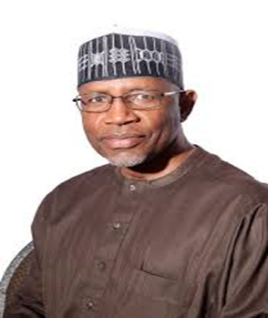
Mr Yuguda was the former Director General of the Securities & Exchange Commission (SEC) of Nigeria and has over 3 decades of experience in Banking, Accounting, Finance, Economics and Investment Management. During his 32 years career at CBN, he spent 16 years leading the team that successfully managed reserve assets that grew to billions of US dollars. He spent 4 years at IMF where he worked on the assessment of economic policies and management of balance of payment support programmes in IMF member countries. Mr. Yuguda holds CFA charter, and Fellow of both the Institute of Chartered Accountants of Nigeria (ICAN) and Chartered Institute of Bankers of Nigeria (CIBN).
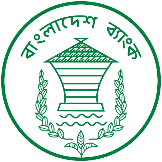









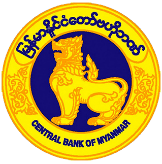



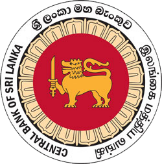





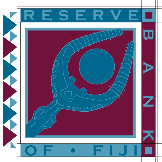







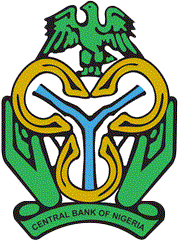



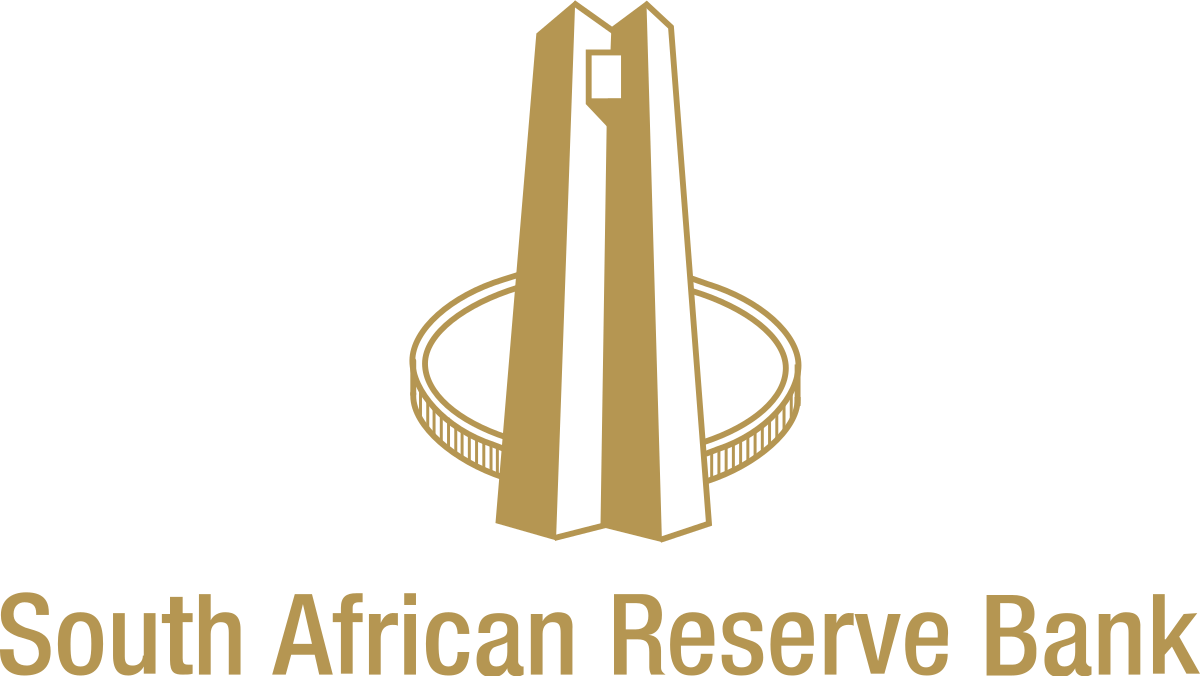



Dr. Ahsan H. Mansur, the 13th Governor of Bangladesh Bank, assumed office on August 14, 2024. His illustrious career began in 1976 as a Lecturer in Economics at the University of Dhaka, after which he pursued higher studies in Canada. Between 1978 and 1981, he served as a graduate student and research assistant of Economics at the University of Western Ontario.
Dr. Mansur joined the International Monetary Fund (IMF) in 1981 under its Economist Programme. Over his distinguished tenure at the IMF, he contributed to fiscal and macroeconomic policymaking across the Middle East, Asia, Africa and Central America. He held pivotal roles, including IMF Senior Resident Representative to Pakistan (1998–2001) and Fiscal Advisor to Bangladesh's Finance Minister (1989–1991). Notably, he played a key role in introducing Value Added Tax (VAT) in Bangladesh in 1991. He later served as the Division Chief of the Gulf Cooperation Council (GCC) Division and IMF Mission Chief for Saudi Arabia, Kuwait, and Oman.
A prolific researcher, Dr. Mansur has published extensively in renowned journals like Econometrica and Journal of Economic Theory. He holds a Ph.D. in Economics from the University of Western Ontario, Canada (1982), an M.A. from McMaster University (1977), and a B.A. (Hons.) in Economics from the University of Dhaka (1974).
Mr. Dasho Penjore was appointed Governor of the Royal Monetary Authority of Bhutan in December 2015 by His Majesty the King and is currently serving his second term after being re-appointed in 2020. Prior to his appointment as Governor, he was the CEO of Bhutan’s National Pension and Provident Fund. Mr. Dasho Penjore also held the position of Gyalpoi Zimpon (Royal Chamberlain), where he worked on social policy and welfare initiatives under His Majesty’s guidance. In recognition of his dedicated service to the nation, he was conferred the Red Scarf along with the honorific title of “Dasho” by His Majesty in 2008. In 2017. He was awarded the Druk Thuksey medal also known as "Heart Son of the Thunder Dragon (Bhutan)", it is awarded by His Majesty the King to people who have contributed in a variety of ways to the socio-economic, religious and political development and growth of Bhutan.
Mr. Dasho Penjore holds a master’s degree in economics from Northwestern University in the United States. With extensive experience in Bhutan’s macroeconomic policy, central banking, and monetary policy, he has built a wide network of professional connections in both the public and private sectors.
Mr. Mustapha Abiodun Akinkumi is a member of the Monetary Policy Committee at the Central Bank of Nigeria. He is an economist with many years of experience in using data mining and econometrics to understand and forecast financial and economic outcomes. He has served for ten years as a Principal Consultant to the Central Bank of Nigeria assisting the Deputy Governor of Economic Policy in identifying and implementing new fiscal and monetary policies. He has successfully identified and implemented change management programs and institutional development initiatives in both public and private sector organizations. Mr. Akinkunmi has also served as the Honorable Commissioner for Finance, Lagos State, Nigeria.
He holds master’s degree in Computer Science from New York Institute of Technology, USA and master’s degree in Economics, and Ph.D. in Economics from Fordham University, USA.
Luis Guilherme Siciliano Pontes joined the Banco Central do Brasil (BCB) in 2003. He has extensive experience in reserve management and foreign exchange (FX) policy operations. Currently, he serves as the Deputy Head of the Foreign Reserves Department. Previously, he was the Head of the Foreign Exchange Division, overseeing the execution of FX policy. In the international reserves sector, he led the Money Market and FX Division, also working as a Portfolio Manager and FX Strategist. Before his tenure at BCB, Mr. Pontes spent five years as an FX Derivatives Trader and Emerging Market Fixed Income Strategist in private investment banks. Mr. Pontes holds a degree in Naval Engineering, a Master’s degree in Naval Engineering and an MBA in Finance.
Aivo H ANDRIANARIVELO is the Governor of the Central Bank of Madagascar since 4 January 2023. He brings 30 years’ experience in the banking and financial sector through various managerial assignments.
Economist, he has a deep knowledge and experience with regard to capital markets, banking matters, business management, project management and public-private funds management.
Prior to joining the Central Bank of Madagascar, he was the Executive Director of the International Monetary Fund (IMF) for Africa II, where he served as a member of the Board and represented 23 african countries.
He has held several senior positions at a bank, where he has been involved in the establishment of the accounting system and the regular report, in the management of foreign currencies, the trading, and then in the organizational, administrative and operational management of the bank as a Deputy Director.
He supported the efficiency of the management related to the financial resource of the programme as Financial Director of Catholic Relief Services.
He also headed the Portage and Privatisation Fund as the Chief Executive Officer and the Chairman. Prior to joining the International Monetary Fund, he was a Technical Advisor to the Cabinet of the Minister of Finance in Madagascar.
He holds degrees in economic sciences and in banking techniques, and also received various training in trading, monetary market, foreign exchange, capital market, leadership and management.
Mr Harvesh Kumar Seegolam was appointed as Governor of the Bank of Mauritius with effect from the 1st of March 2020 by His Excellency Prithvirajsingh Roopun, G.C.S.K., President of the Republic, in accordance with Section 13 of the Bank of Mauritius Act 2004, and upon the recommendation of the Prime Minister.
Prior to his appointment as Governor of the Bank of Mauritius, Mr Seegolam was the Chief Executive of the Financial Services Commission (FSC) since July 2017.
In his previous position, Mr Seegolam spearheaded numerous national initiatives with respect to the development and regulation of Financial Services. He has equally been instrumental in delivering on the national strategy with respect to the 10-year Blue Print for the financial services sector.
Driving a culture of innovation throughout the industry, Mr Seegolam has been at the forefront of the establishment of the National Regulatory Sandbox Licence Committee in 2018, and is a member of the Mauritius Artificial Intelligence Council.
Over the last years, Mr Seegolam has been a key contributor and a member of various technical committees at the level of the Organisation for Economic Cooperation and Development (OECD). He has driven the setting up of the FSC Regional Centre of Excellence – an initiative launched in collaboration with the OECD, aiming at furthering capacity building and research in the fields of financial services, competition and digital finance in Sub Saharan Africa for regulatory bodies and law enforcement agencies.
Prior to joining the FSC, Mr Seegolam launched and ran the Financial Services Promotion Agency with the mandate of promoting Mauritius as an International Financial Centre. Mr Seegolam has equally been part of the strategic team leading the Board of Investment of Mauritius, now the Economic Development Board, where he was in charge of the Innovation, Technology and Services cluster.
Governor Seegolam holds a BSc (Hon) in Economics and an MSc in International Finance, in addition to several other qualifications in accountancy and finance. He is an alumnus of the London School of Economics & Political Science, the University College London, Durham University, as well as the SKEMA ‘Grande Ecole de Commerce’ in France.
Rogério Lucas Zandamela was born in Inhambane on February 24, 1957. During the colonial period he attended the Liceu António Salazar (now Josina Machel Secondary School) and concluded his secondary studies at Liceu António Enes (now Francisco Manyanga Secondary School), in Lourenço Marques (now Maputo city). He began his degree in Economics at the University of Lourenço Marques (now Eduardo Mondlane University) in 1976 and, in 1981, he concluded his bachelor's degree in Economics and Trade at the Università Cattolica del Sacro Cuore, in Italy.
In 1983, he pursued his studies and obtained a postgraduate diploma in Development Economics at Université Paris II - Sorbonne, in France.
In 2006, he was an Assistant Professor of Economics at Eastern Michigan University, Ypsilanti, in the United States of America.
Zandamela holds a PhD in Economics from John Hopkins University (1987). He has been an official at the International Monetary Fund since 1988, where he served as Resident Representative for Brazil, and Head of Mission for Armenia, Costa Rica, Gambia, Guatemala, Liberia, Malaysia, Nicaragua, Peru, Trinidad and Tobago and Zimbabwe, in the Monetary and Capital Markets Department.
Until his appointment as Governor of the Banco de Moçambique on 1 September 2016, he was the Head of Mission for Djibouti and Somalia in the IMF Middle East and Central Asia Department.
Ms. Than Than Swe has been working as the Governor of the Central Bank of Myanmar since 2022. Before taking over this position, she was working as the Deputy Governor and she has over 30 years of experience in Central Bank and banking industry. She is also a chair of the Board of Directors at the Central Bank of Myanmar, and playing a vital role of payment development policy and digital economy development committee. Previously, she worked as an Advisor to the World Bank from 2012 to 2014.
She takes the position of the Chair of the Monetary Policy Committee, the Foreign Exchange Reserve Management Committee, the National Payment System Governing Committee, and the Working Group on Anti-Money Laundering and Countering the Financing of Terrorism.
Ms. Than Than Swe has earned Bachelor of Commerce and Diploma in Management Accounting, from the Institute of Economics (Yangon) and expanded a Diploma in English from Yangon University. She also pursued an advanced Master's degree in Business Administration (MBA) from Japan.
Maha Prasad Adhikari is the Chairperson of the Board of Directors and the 17th Governor of Nepal Rastra Bank (NRB). Before his appointment as the Governor of NRB, he served as Chief Executive Officer at the Investment Board Nepal (IBN), Government of Nepal, and Deputy Governor of NRB. Preceding those appointments, he had served NRB for more than 25 years in various capacities. Throughout his career as a central banker, Mr. Adhikari has gained wide-ranging experience in central banking, especially relating to financial stability, financial sector reforms, Anti Money Laundering/Combating the Financing of Terrorism, and implementation of Accounting Standards, among others. As Deputy Governor of NRB, Mr. Adhikari played a leading role in various financial sector policies and financial sector reform programs with active engagement in areas such as Problem Bank Resolution, Capital Adequacy Framework, Risk Based Supervision, Early Warning System and Prompt Corrective Actions. He was nominated as the coordinator of the management team of Nepal Bangladesh Bank Limited when the bank was declared problematic and played a critical role in its turnaround.
Dr. P Nandalal Weerasinghe holds a PhD and a Master’s Degree in Economics from the Australian National University, and a B.Sc. Degree from the University of Kelaniya. Dr. Weerasinghe served at the Central Bank of Sri Lanka nearly 30 years in different capacities including Chief Economist/Director of Economic Research, Assistant Governor, Deputy Governor and Senior Deputy Governor. He also served as an Alternate Executive Director for India, Sri Lanka, Bangladesh and Bhutan, at the International Monetary Fund.
Dr. Weerasinghe also served as Visiting Lecturer for the Master’s Degree Course in Economics at the University of Colombo, Visiting Research Economist at the SEACEN Centre, Malaysia, and Visiting Research Fellow at the Australian National University. He is also an Advisory Board Member of the Centre for Applied Macroeconomic Analysis, Crawford School of Public Policy, Australian National University. He has published several research papers in international and local journals, including the Central Bank’s Staff Studies.
After retirement from the Central Bank in January 2021 he worked as an Independent Consultant for economic and financial matters for multilateral agencies and global investment firms prior to assuming duties as the 17th Governor of the Central Bank in April 2022. Dr Weerasinghe has been rated ‘A‘ by Global Finance Magazine recently, based on inflation control, economic growth goals, currency stability and interest rate management.
Dr. John Mushayavanhu is the eighth Governor of the Reserve Bank of Zimbabwe. Before joining the Reserve Bank of Zimbabwe in early 2024, Dr. Mushayavanhu, served as the Group Chief Executive Officer of the FBC Holdings, which is one of the largest financial services group in Zimbabwe with interests in banking, insurance and stockbroking. He has spent more than three decades in financial sector in various capacities, including at Standard Chartered Bank, Zimbabwe. He also served as the President of the Bankers Association of Zimbabwe.
The Reserve Bank of Fiji appointed Mr. Petaia Tuimanu as Chief Manager Financial Markets in January 2023 and prior to this Mr. Tuimanu was the Chief Manager Economics from 01 August 2018. Mr. Tuimanu had joined the Reserve Bank of Fiji in October 2001 as an economist and was promoted to senior economist in November 2010. From September 2015 to August 2017, he was seconded to the International Monetary Fund in Washington, D.C, as an advisor in the Southeast Asia Group.
He attained his Master’s Degree in Public Administration specialising in Economic Policy Management from Columbia University (New York), which included a 3-month attachment with the World Bank in Washington D.C. Mr. Tuimanu also has a Master of Economics from University Putra Malaysia, and a Bachelor of Arts in Economics and Banking & Finance, from the University of the South Pacific.
Mr. Syafruddin Kartikawulan has built a solid career in market sector, starting in the Reserve Management Department with a focus on market analysis. He later moved to the Monetary Operation Department, contributing to market development and supporting exchange rate stabilization and monetary operations. In his current role, Mr. Kartikawulan leads the Reserve Management Policy Group, overseeing the strategic direction of foreign exchange reserves and ensuring effective management aligned with the central bank’s objectives.
Mr Janse van Vuuren started his career at the SARB 2007 as a fixed income portfolio manager. From 2016 to 2020 he served as head of investments at the international fund for agriculture development. He returned to the SARB to assume the role of manager for domestic operations and recently became head of foreign exchange reserves management. He holds a master’s degree in economics as well an MBA and is a CFA and CAIA charter holder.
H.E. Ahmed Munawar was appointed as the 9th Governor and Chairperson of the Board of Directors of the Maldives Monetary Authority (MMA) on 31st July 2024, for a term of seven years. In addition to his role at the MMA, Governor Munawar serves as the Chairperson of the National Coordination Committee for Anti-Money Laundering and Combating the Financing of Terrorism, the national body responsible for coordinating and overseeing anti-money laundering and counter-terrorism financing efforts.
Governor Munawar's distinguished career includes serving as the Minister of Finance and Treasury from 2016 to 2018 and as the State Minister of the Ministry of Finance and Treasury from 2014 to 2016. Furthermore, he was the Dean of the Kulliyyah of Economics and Management Studies (KEM) at the Islamic University of Maldives from 2021 to 2023. His earlier tenure at the MMA, spanning from 1999 to 2014, involved various roles that significantly contributed to his expertise in the field.
Governor Munawar holds a Master of Economics with a major in Monetary Economics from Macquarie University, obtained in 2008. He also holds a Bachelor of Economics (Hons) with a major in Finance from the International Islamic University Malaysia (IIUM), completed in 2004.
Leonie Dunn was born in Rehoboth, Namibia to Namibian parents. She schooled in the regional areas of Namibia and are amongst Namibia’s first previously disadvantaged females who were awarded with the Law Society of Namibia Scholarship to purse the degrees BA Law LLB at the University of Stellenbosch successfully attaining same during the years 1995 and 1997 respectively. She further remains amongst the first previously disadvantaged Namibian females who successfully qualified as Legal Practitioner and practice as such in Namibia. Leonie is also a Chevening Alumni who with a Chevening Scholarship, attained her Master’s in Law Degree specializing in Commercial Law, from Cardiff Law School, University of Cardif, Wales UK in 2004 cum laude. Additionally, she attained specialised training in Financial Market Integrity Leadership, World Bank (2007), Executive Leadership Wits Business School (2010), Woman in Leadership, University of America, USA (2008); Advanced Executive Management at Harvard University Business School (2023), Other specialized training attained were in the areas of law, financial services regulation, financial inclusion, financial market integrity, financial stability, macroprudential oversight, digital transformation and innovation, and Anti-Money Laundering and Combatting the Financing of Terrorism and Proliferation prevention and combatting Policy, Legislative and Implementation measures.


The session provides central bank perspectives on handling the macroeconomic trade-offs in the Global South that are fundamentally different from advanced economies. Specifically, the focus is on the toolkit and instruments available for managing the growth-inflation balance in the Global South.
Shri N. K. Singh, Former Chairman, 15th Finance Commission, Government of India
 11:30 hrs – 11:50 hrs
11:30 hrs – 11:50 hrs The session discusses the effectiveness of central bank communication as an instrument for achieving policy objectives in the Global South. This is crucial as communication in the Global South is diverse in content and style, and vastly different from those in advanced economies.
Dr. Michael D. Patra, Deputy Governor, Reserve Bank of India
Dr. Sajjid Chinoy, Managing Director and Chief India Economist, J. P. Morgan
With the rapidly increasing digitalisation of the payments ecosystem, economies of the Global South are witnessing transformative changes in their economic systems. In this context, the session reflects on the implications and opportunities of the ongoing shift towards digital payments and their impact on economic growth.
Mr. B. P. Kanungo, Director, Centre for Advanced Financial Research and Learning (CAFRAL)
 15:10 hrs – 15:30 hrs
15:10 hrs – 15:30 hrs The session discusses the country experiences and individual perspectives of central banks of the Global South in the wake of sharper trade-offs faced by them amidst limited fiscal space, policy spillovers from advanced economies and heightened global financial market volatility.
Mr. K.V. Kamath, Former President, New Development Bank, BRICS

In the aftermath of the pandemic, central banks globally had to explore newer avenues to deploy reserve assets, safe-guard reserves from geopolitical shocks, and diversify out of traditional currencies to commodities and other currencies. Given this backdrop, the session brings together reserve managers from the Global South in sharing their experiences on managing such challenges.
Mr. T. Rabi Sankar, Deputy Governor, Reserve Bank of India
Dr. P. Nandalal Weerasinghe, Governor, Central Bank of Sri Lanka
Mr. Luis Bengochea, Head of Banking Department, Bank for International Settlements
 11:00 hrs – 11:30 hrs
11:00 hrs – 11:30 hrs Increasing interconnectedness not only between banks but also among banks and non-banking entities underscore the threats of contagion. Besides, technological advancements, expanding footprint of Non-Banking Financial Institutions (NBFIs), climate change, etc. pose futuristic challenges. In view of this, the session throws light on regulatory approaches in the Global South.
Mr. M. Rajeshwar Rao, Deputy Governor, Reserve Bank of India
Mr. Jayant Kumar Dash, Executive Director, Reserve Bank of India
Emerging risk paradigm requires a comprehensive and adaptive approach to supervision to maintain stability and trust in the financial sector. In this backdrop, this session seeks to bring fresh perspectives on supervisory issues and challenges in the Global South.
Mr. Swaminathan Janakiraman, Deputy Governor, Reserve Bank of India
Mr. M. Nagaraju, Secretary, Department of Financial Services, Ministry of Finance, Government of India
 15:25 hrs – 16:00 hrs
15:25 hrs – 16:00 hrs 
 RBI@90 Global Conference
RBI@90 Global Conference